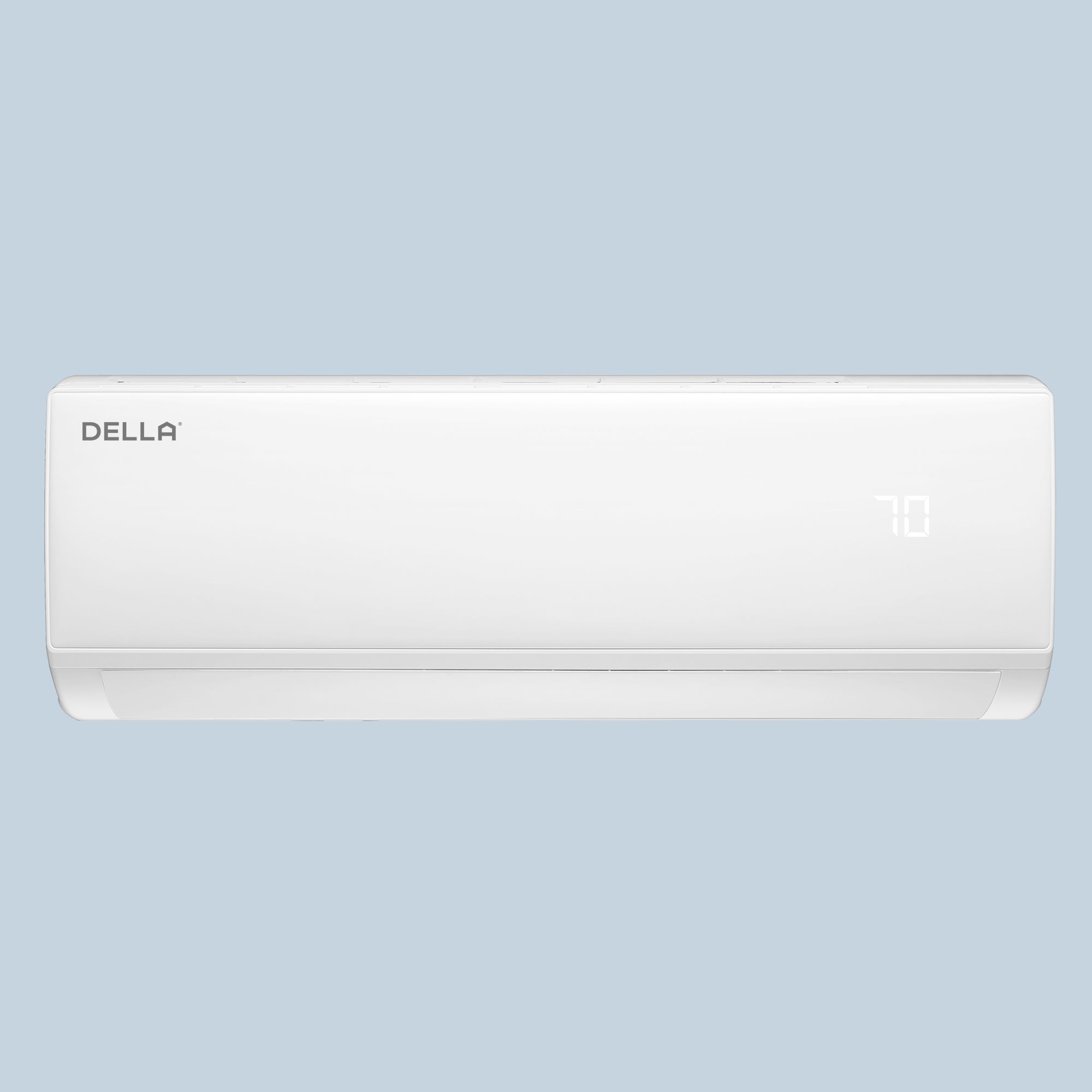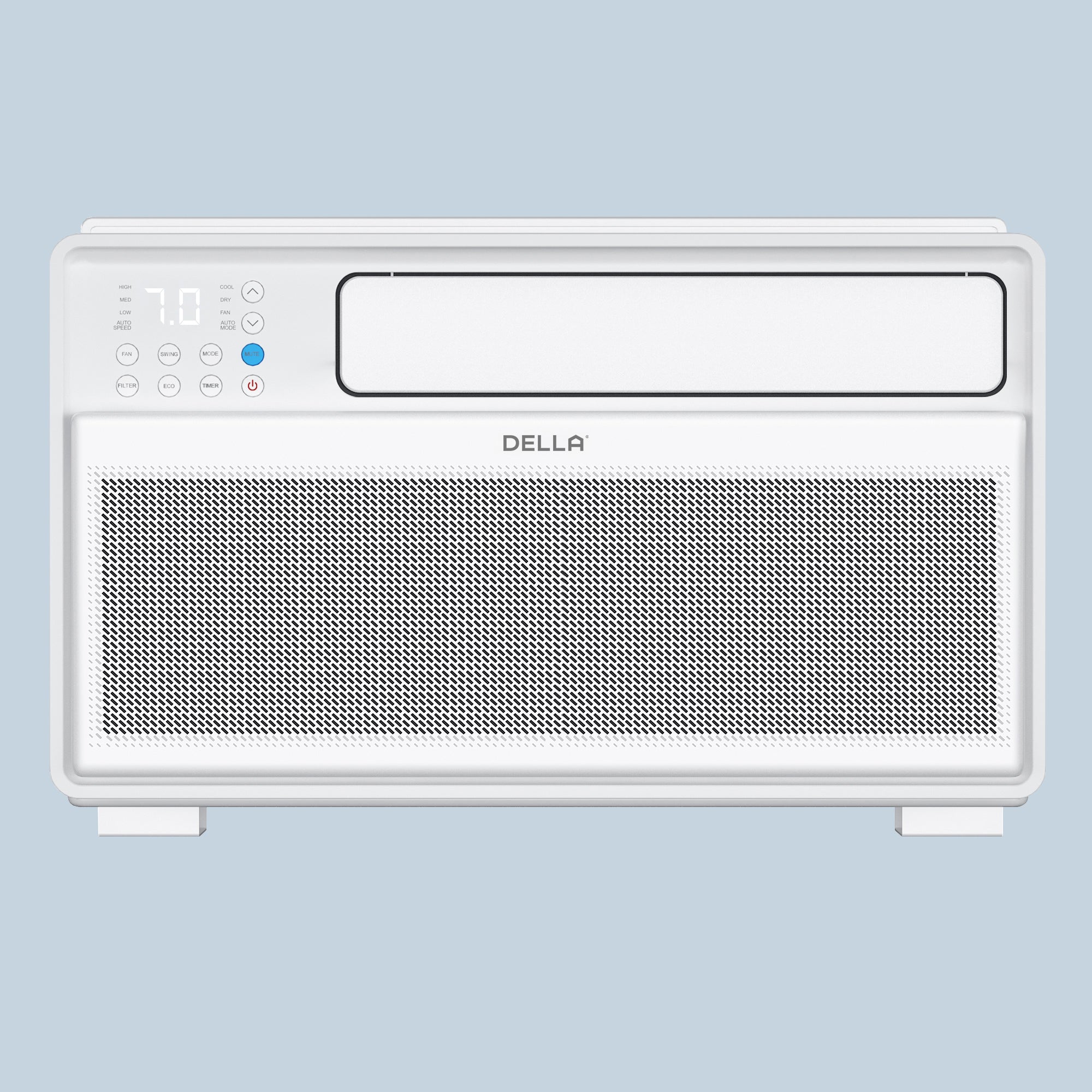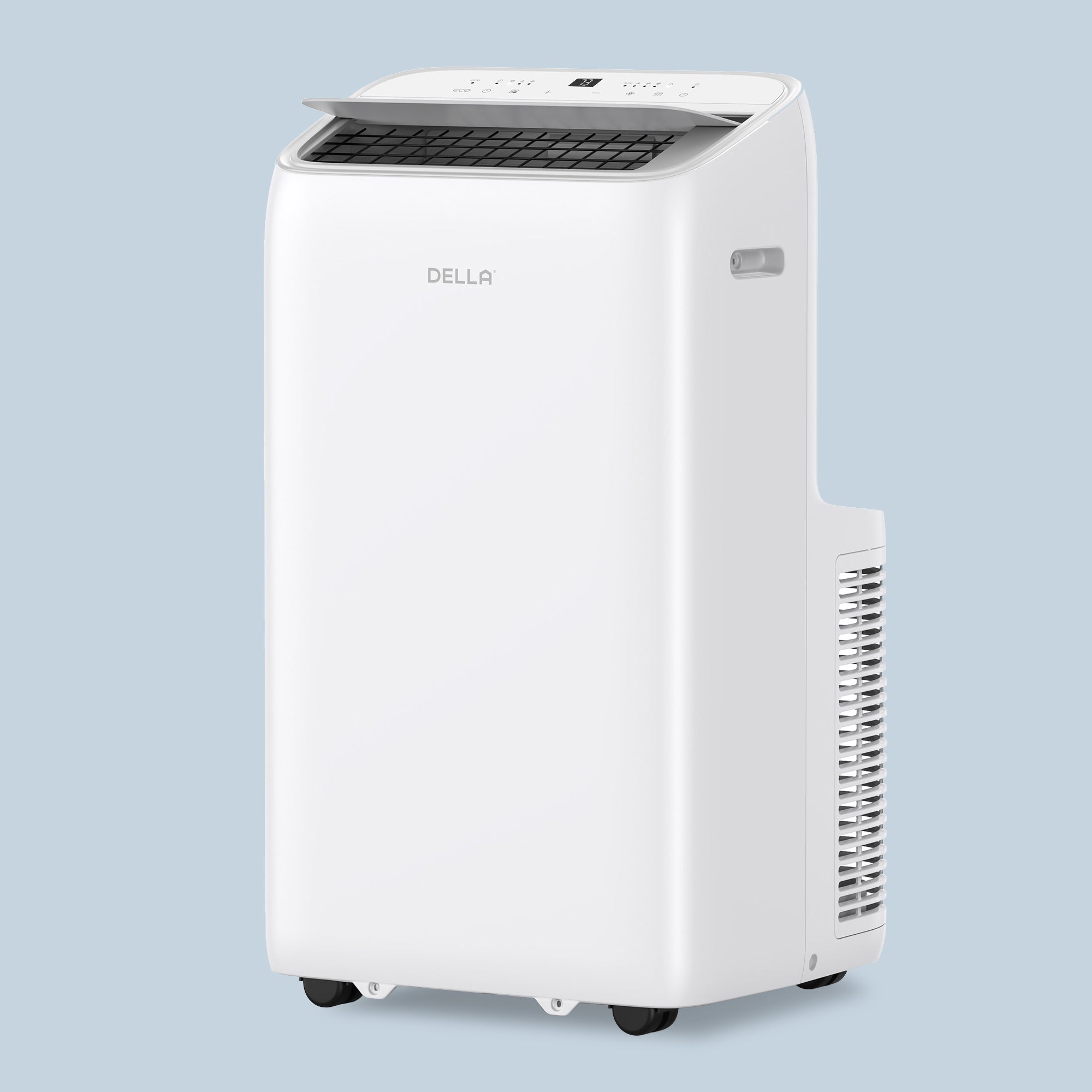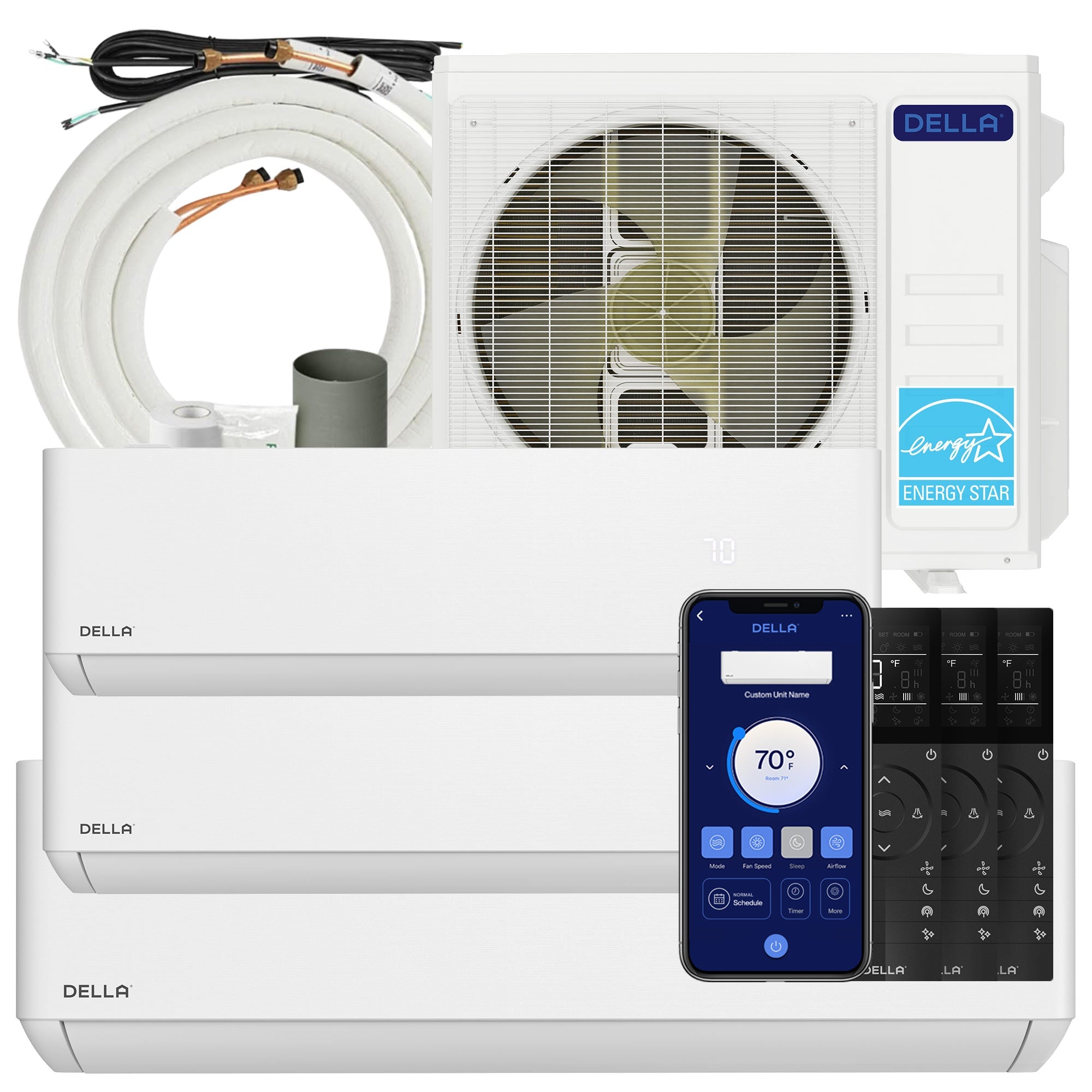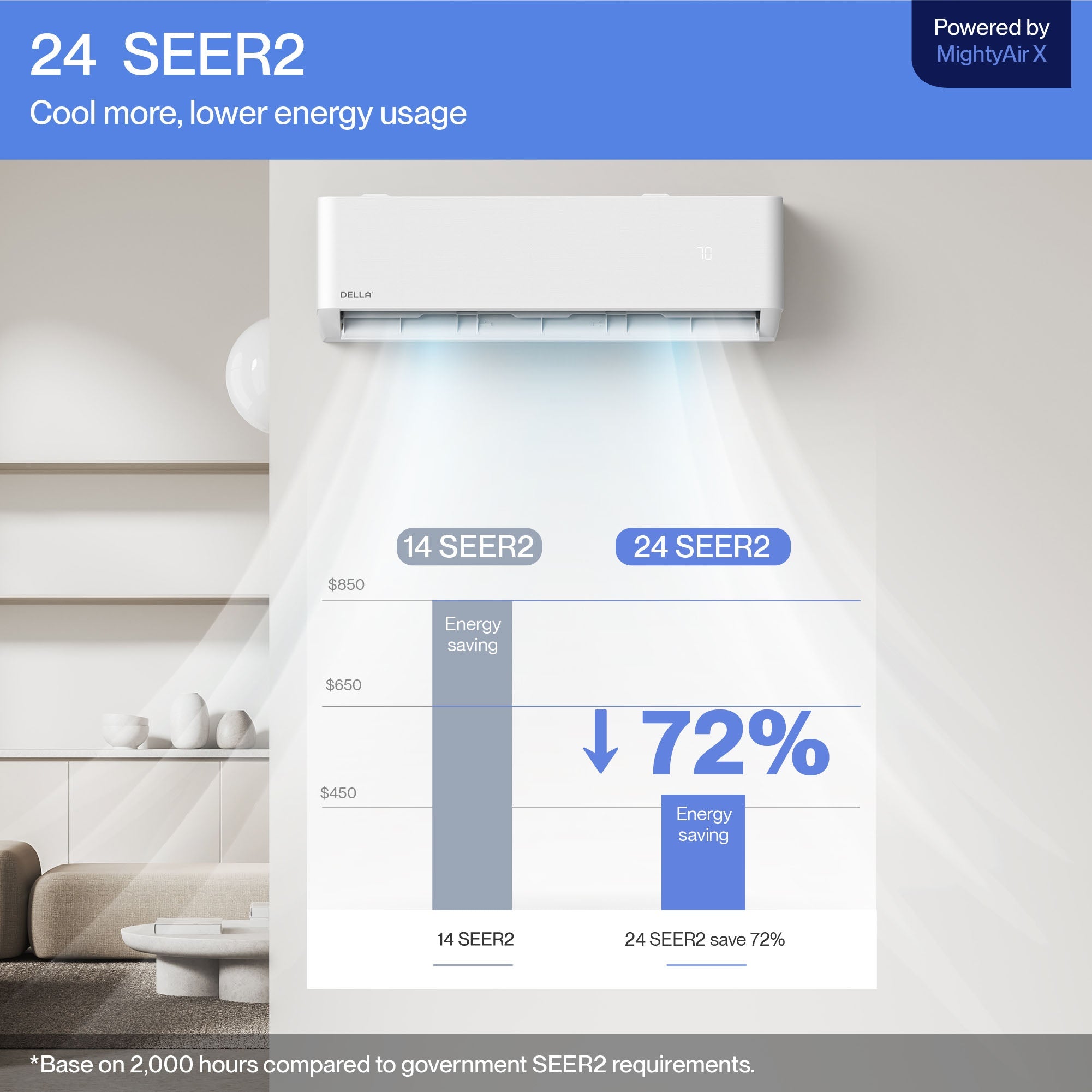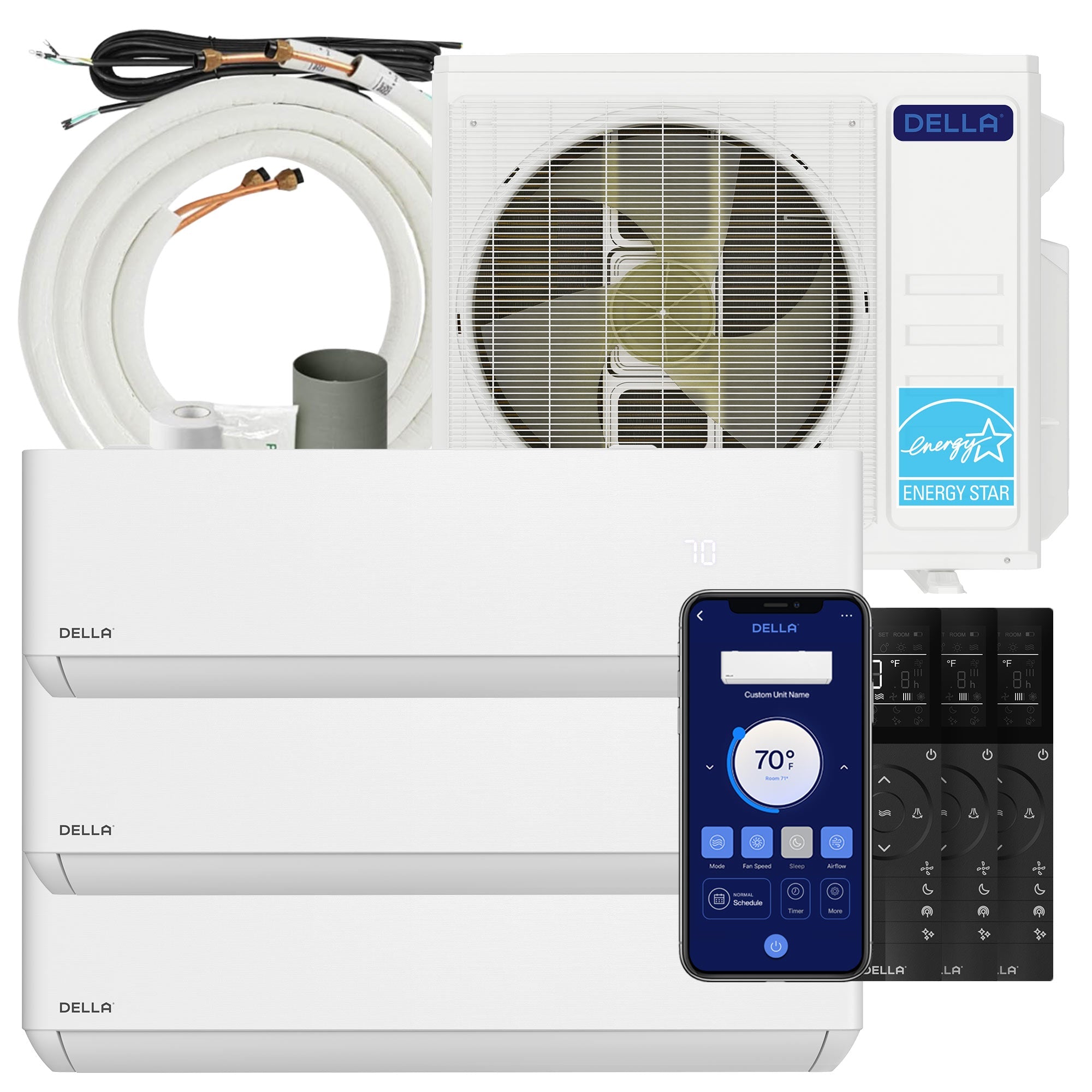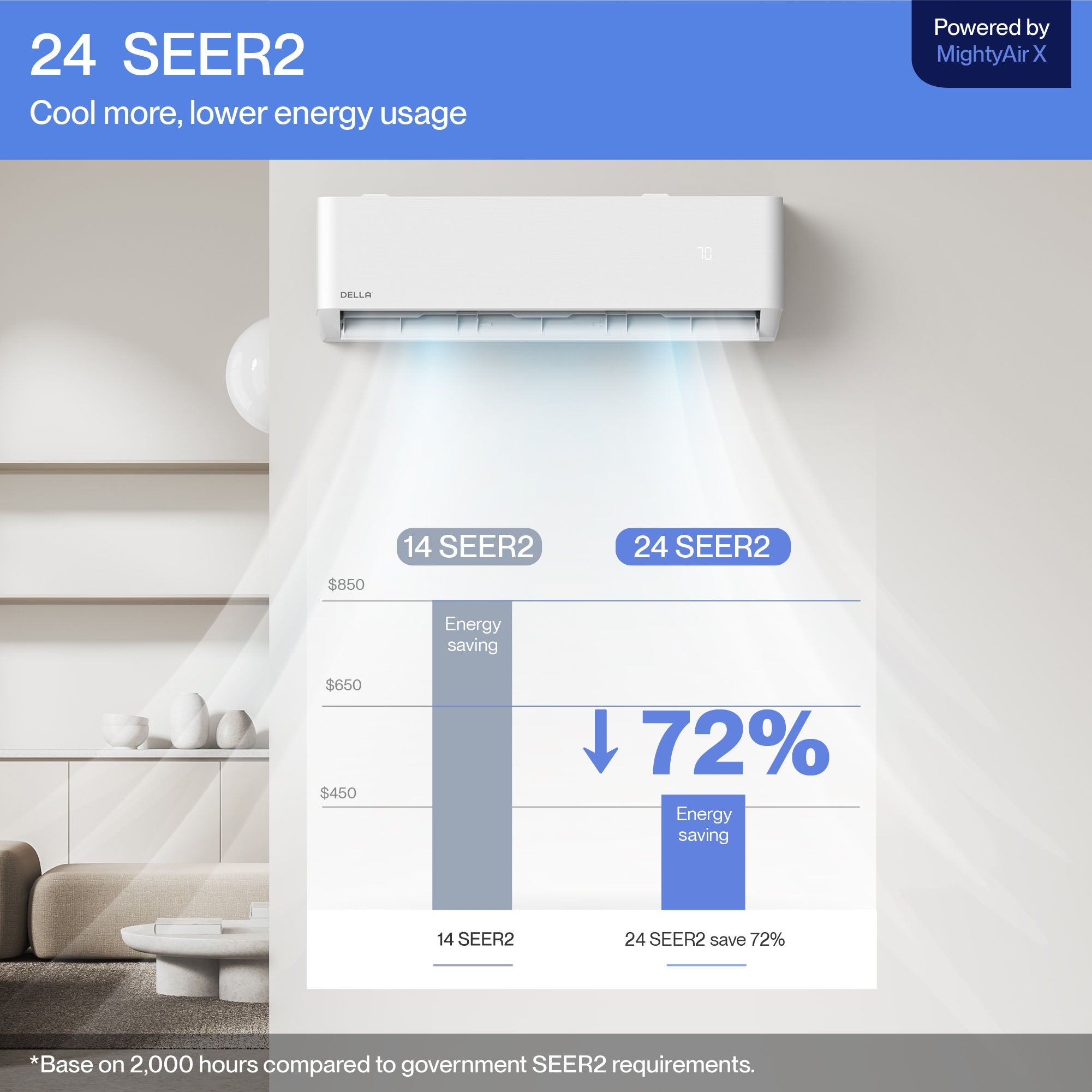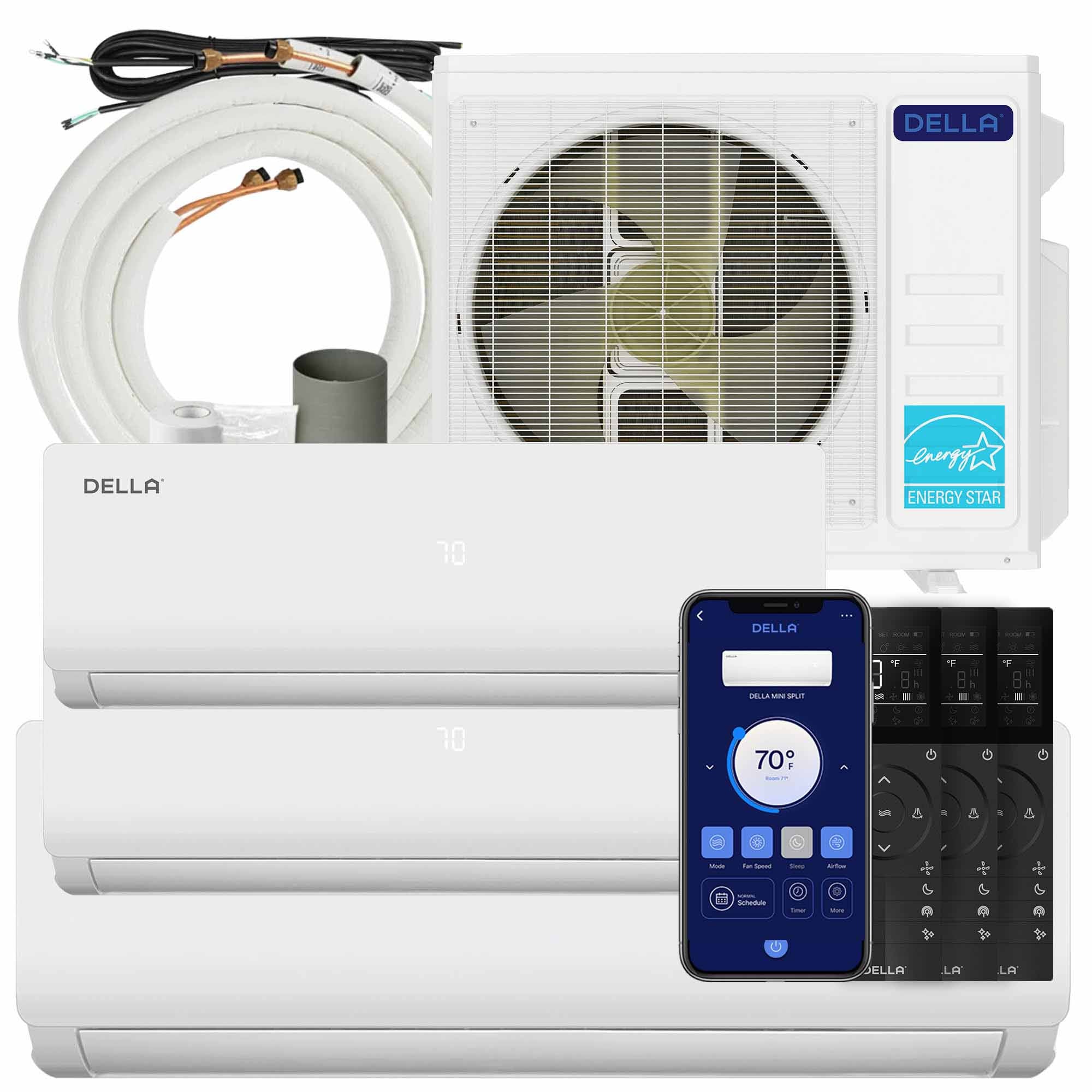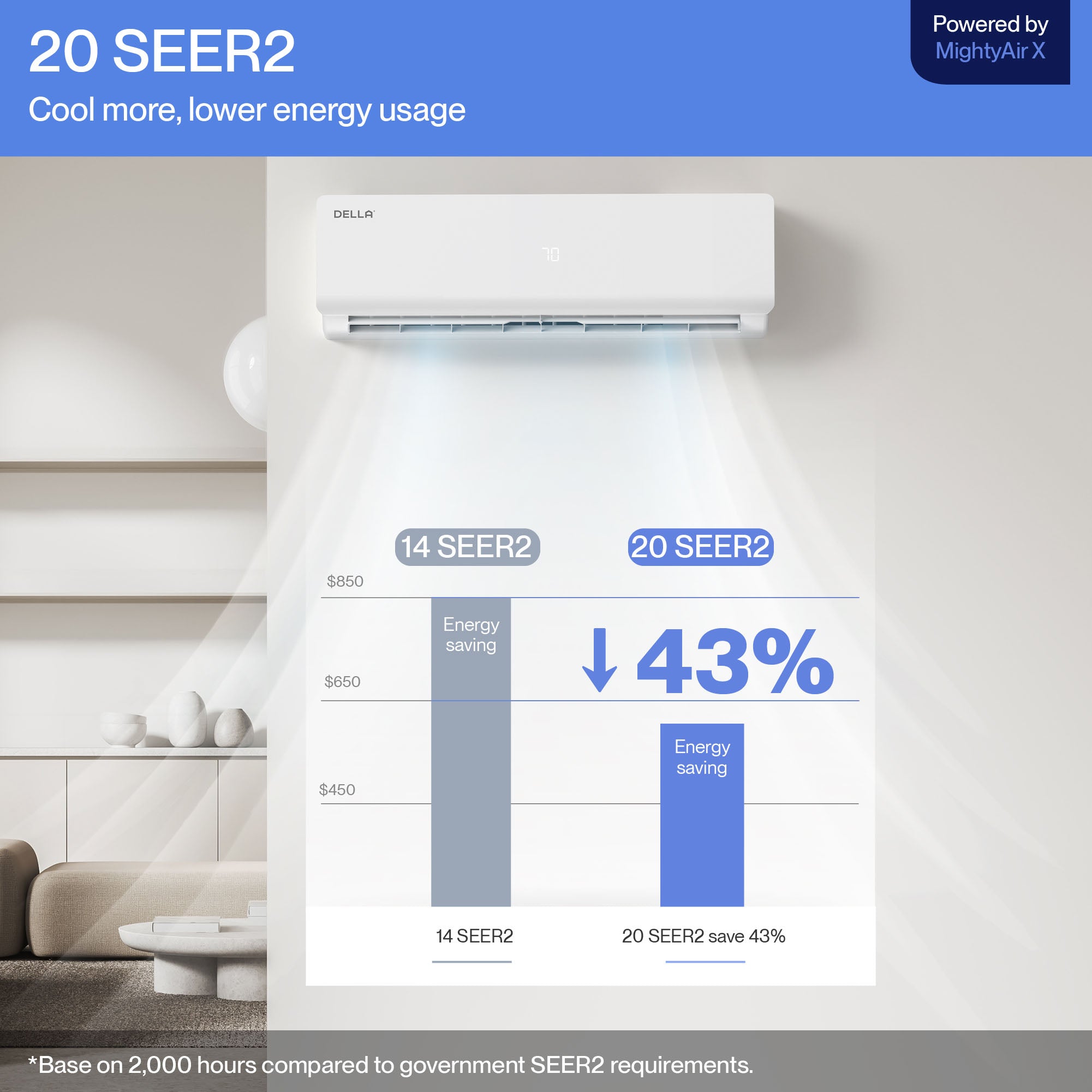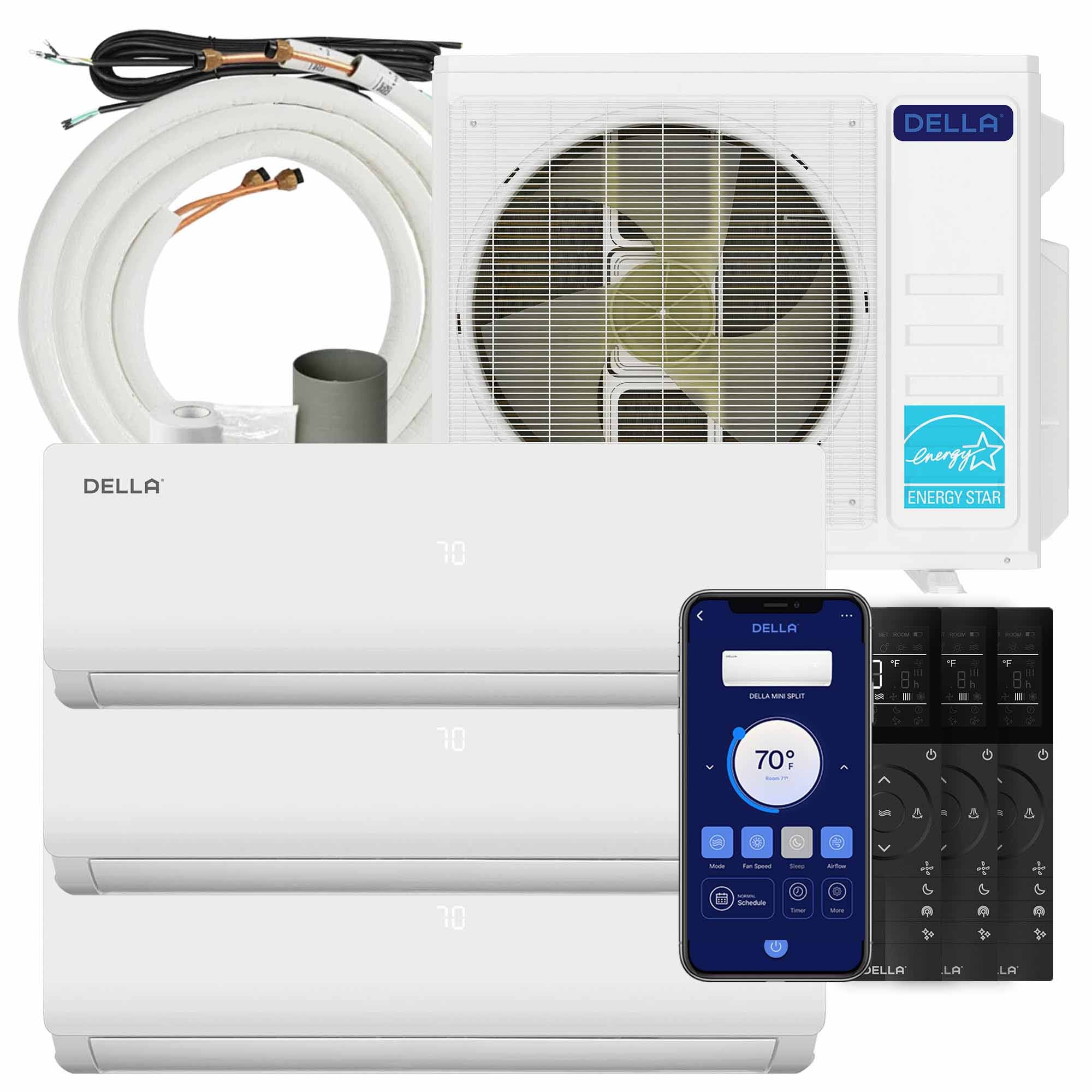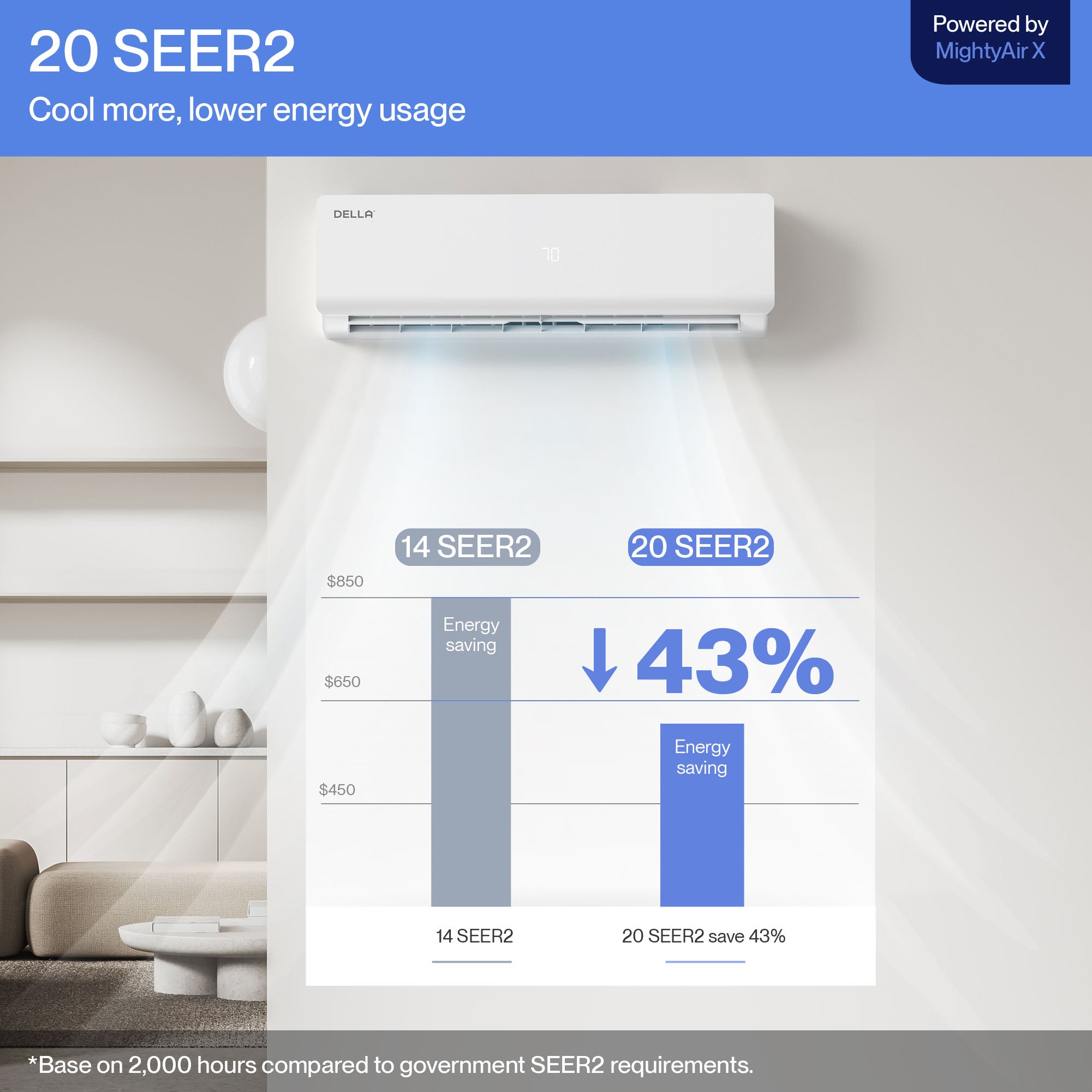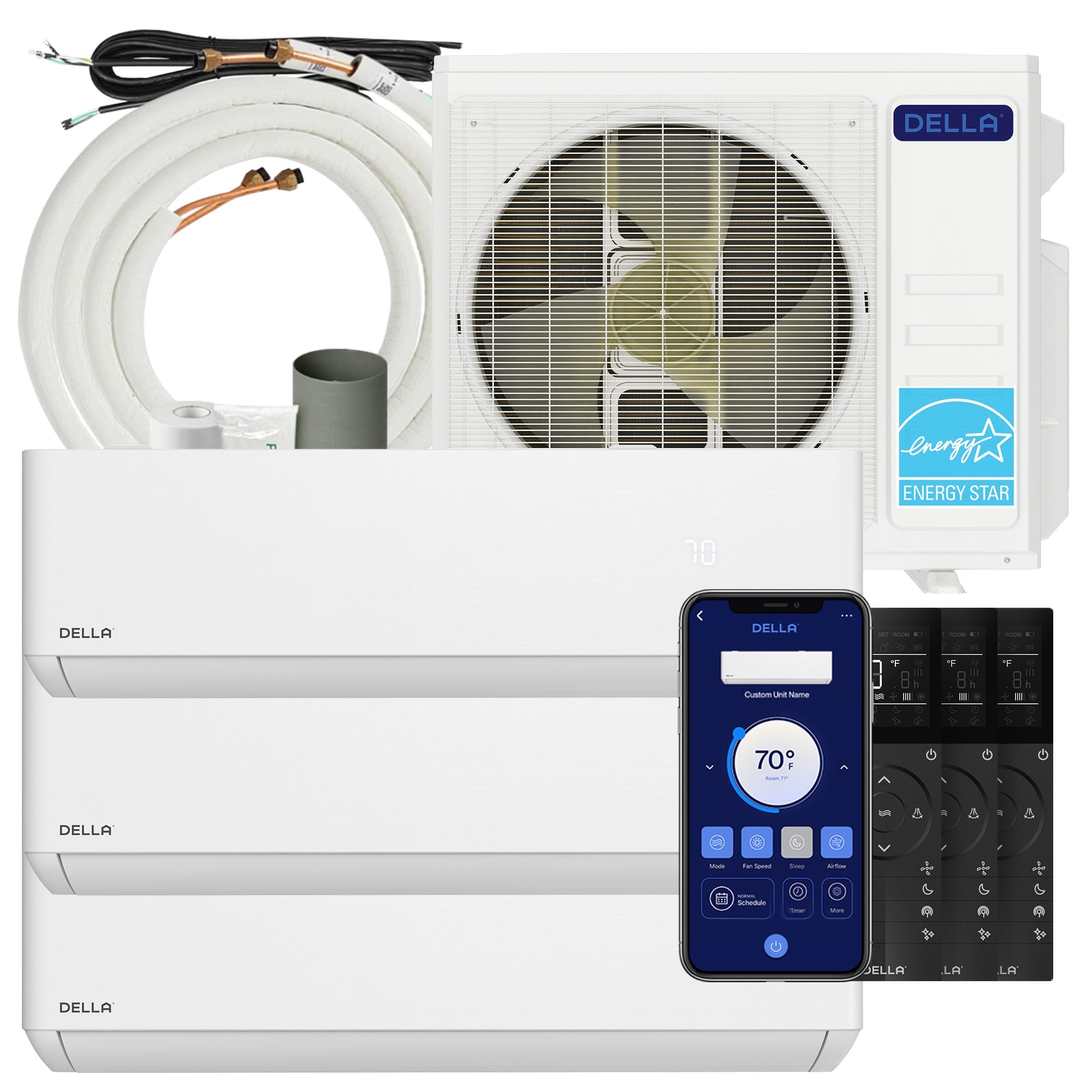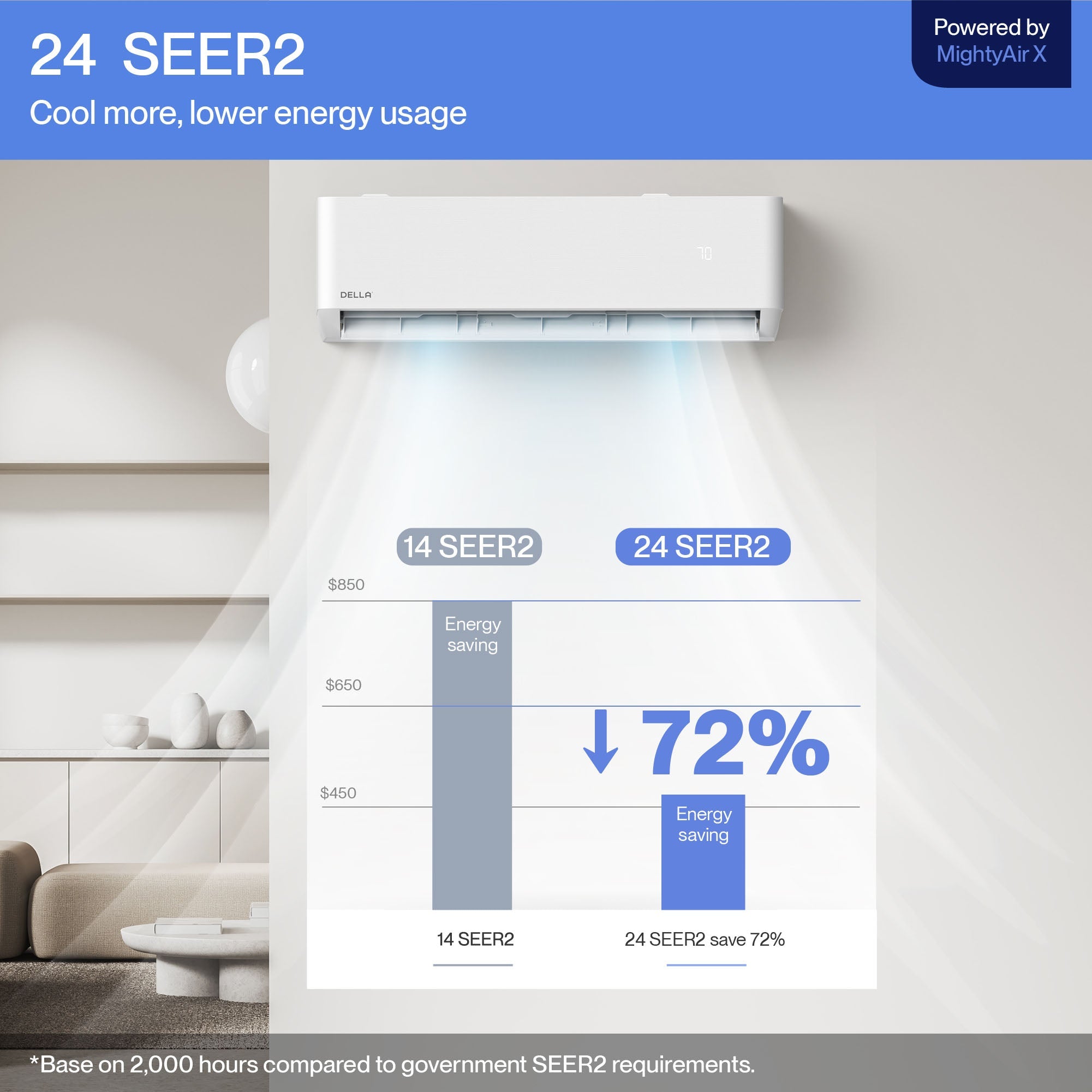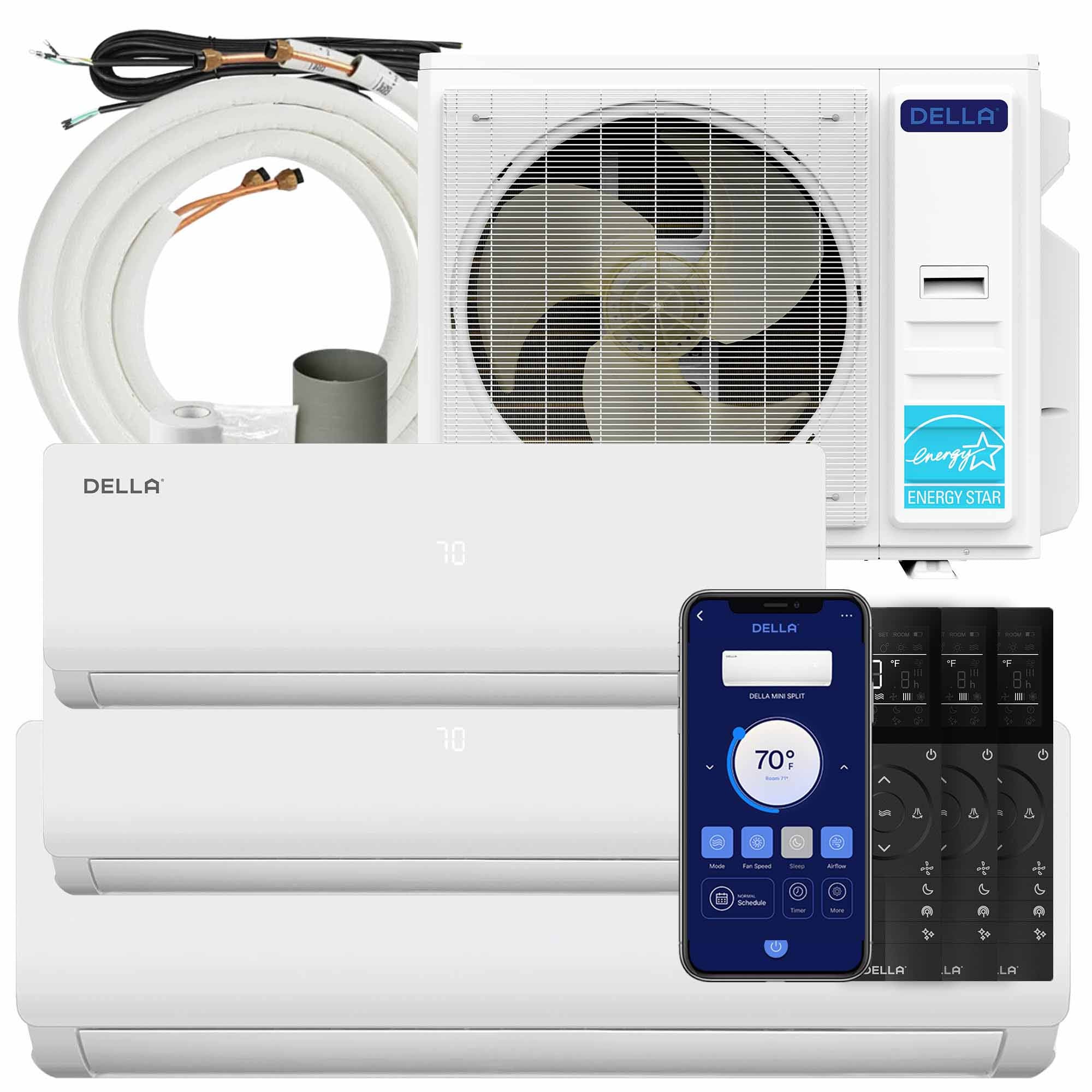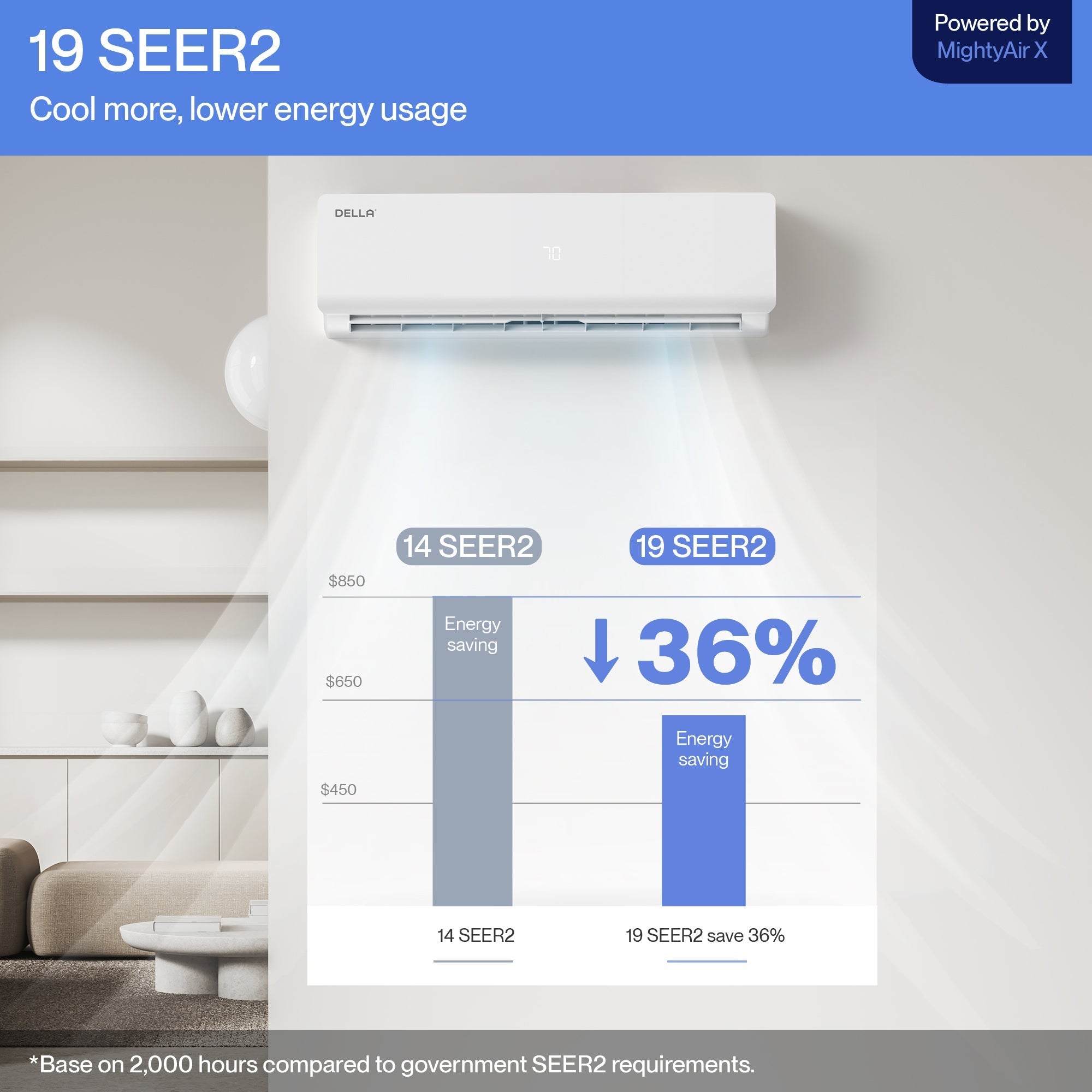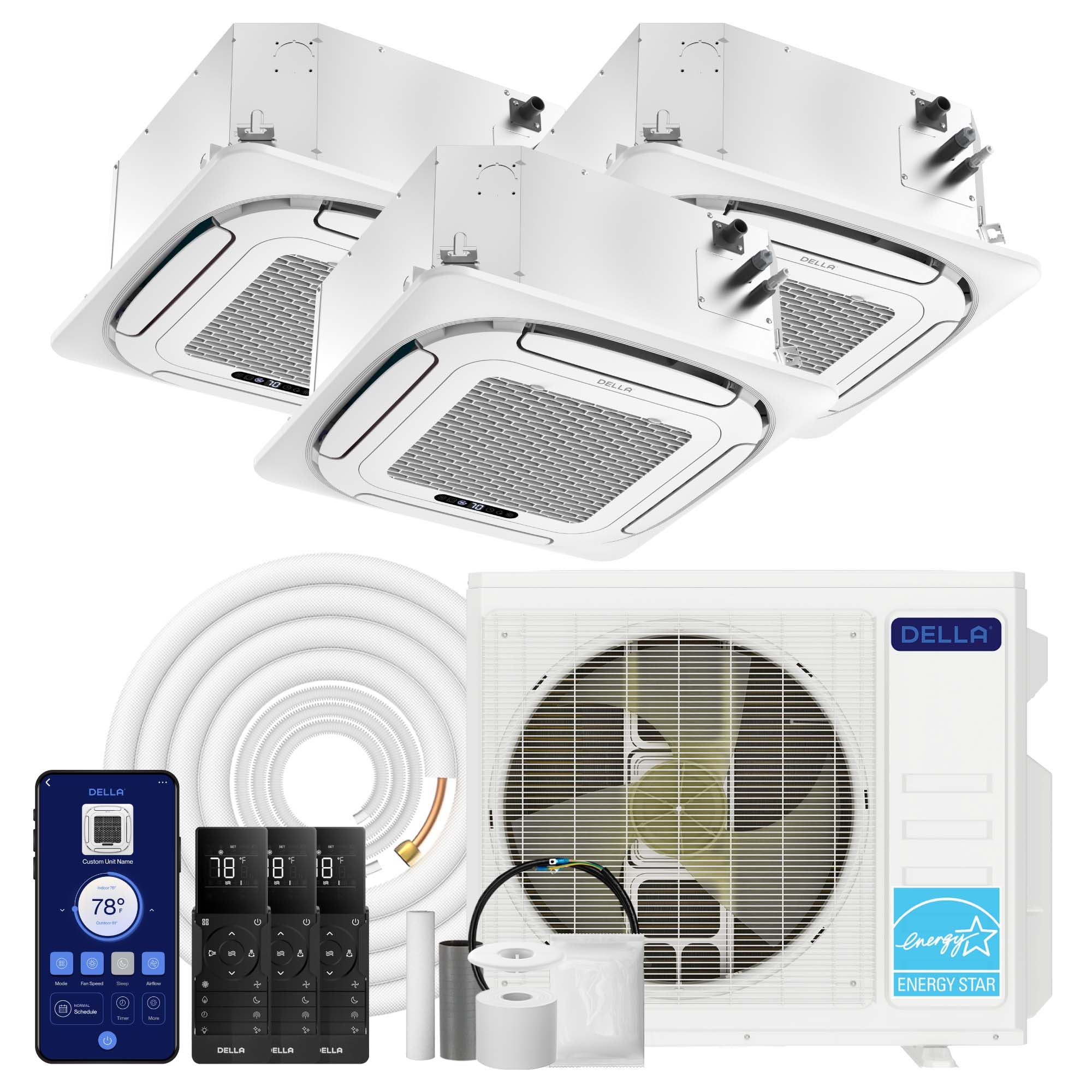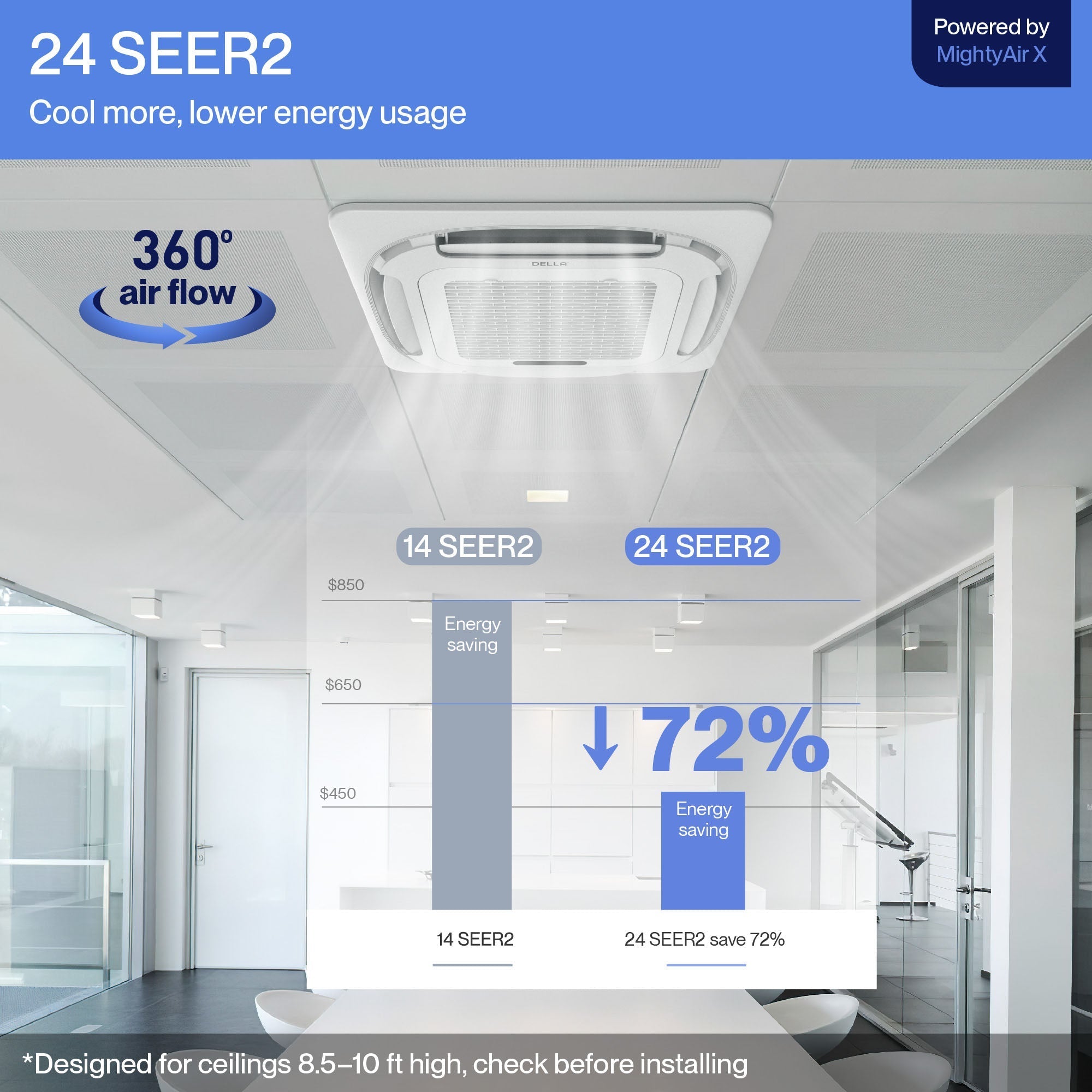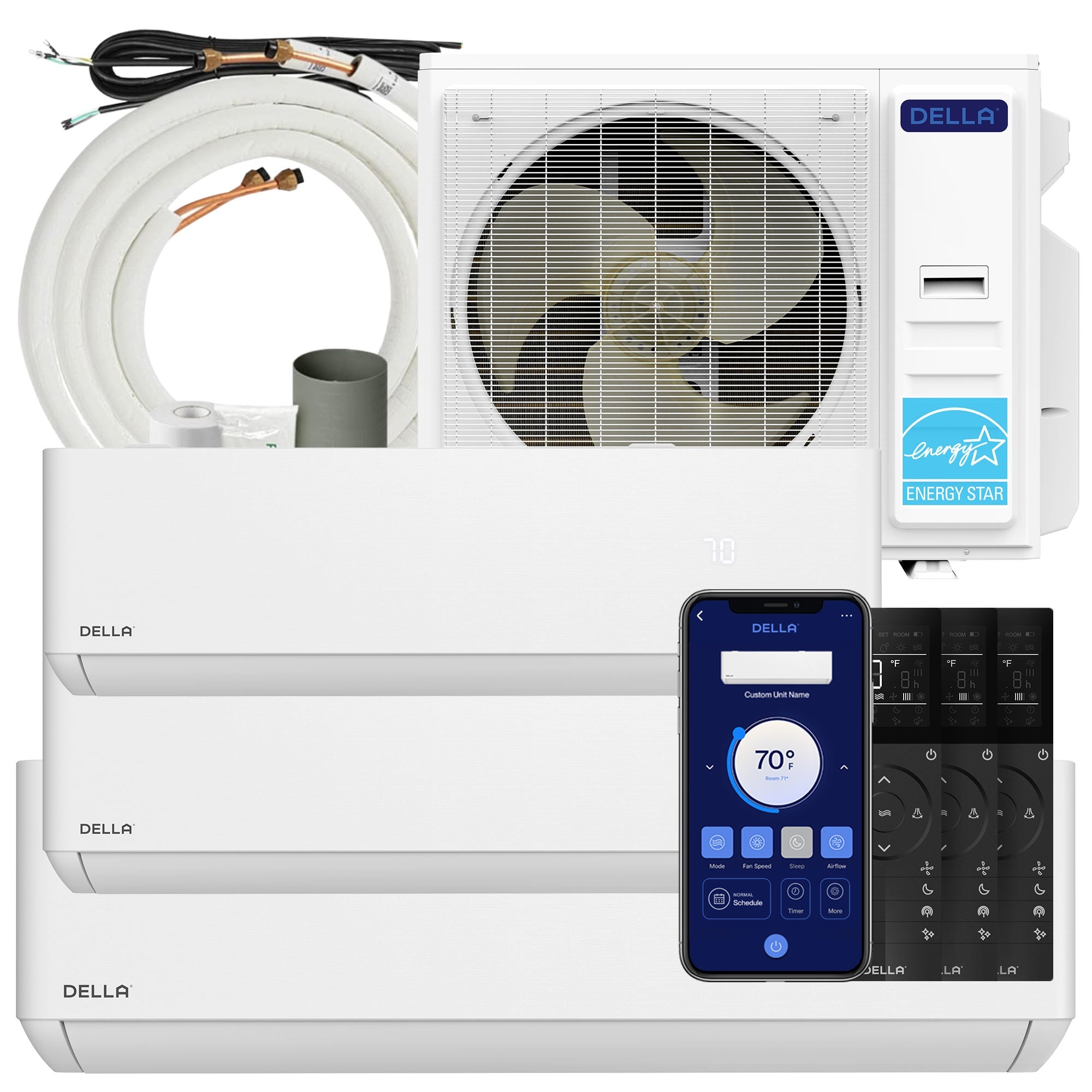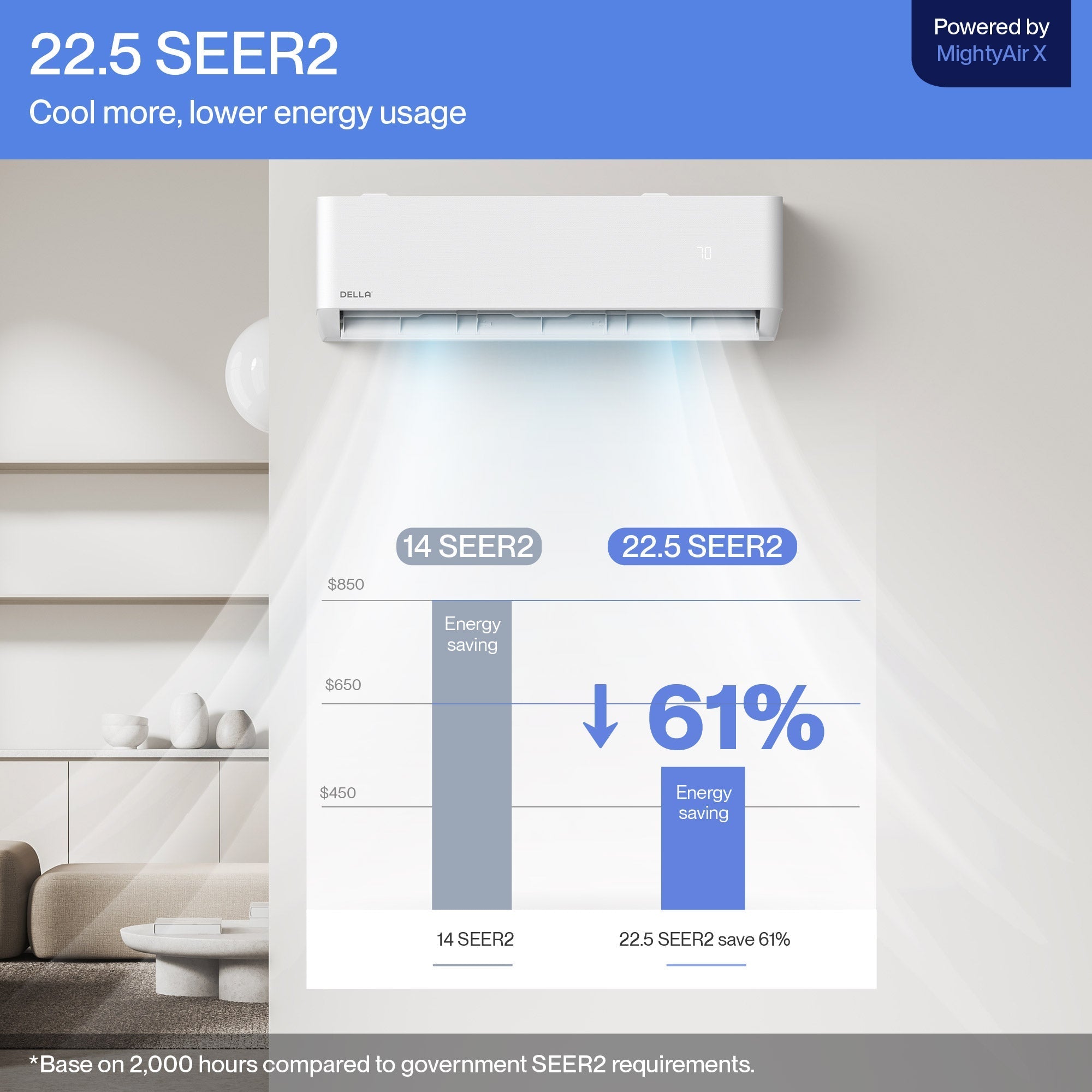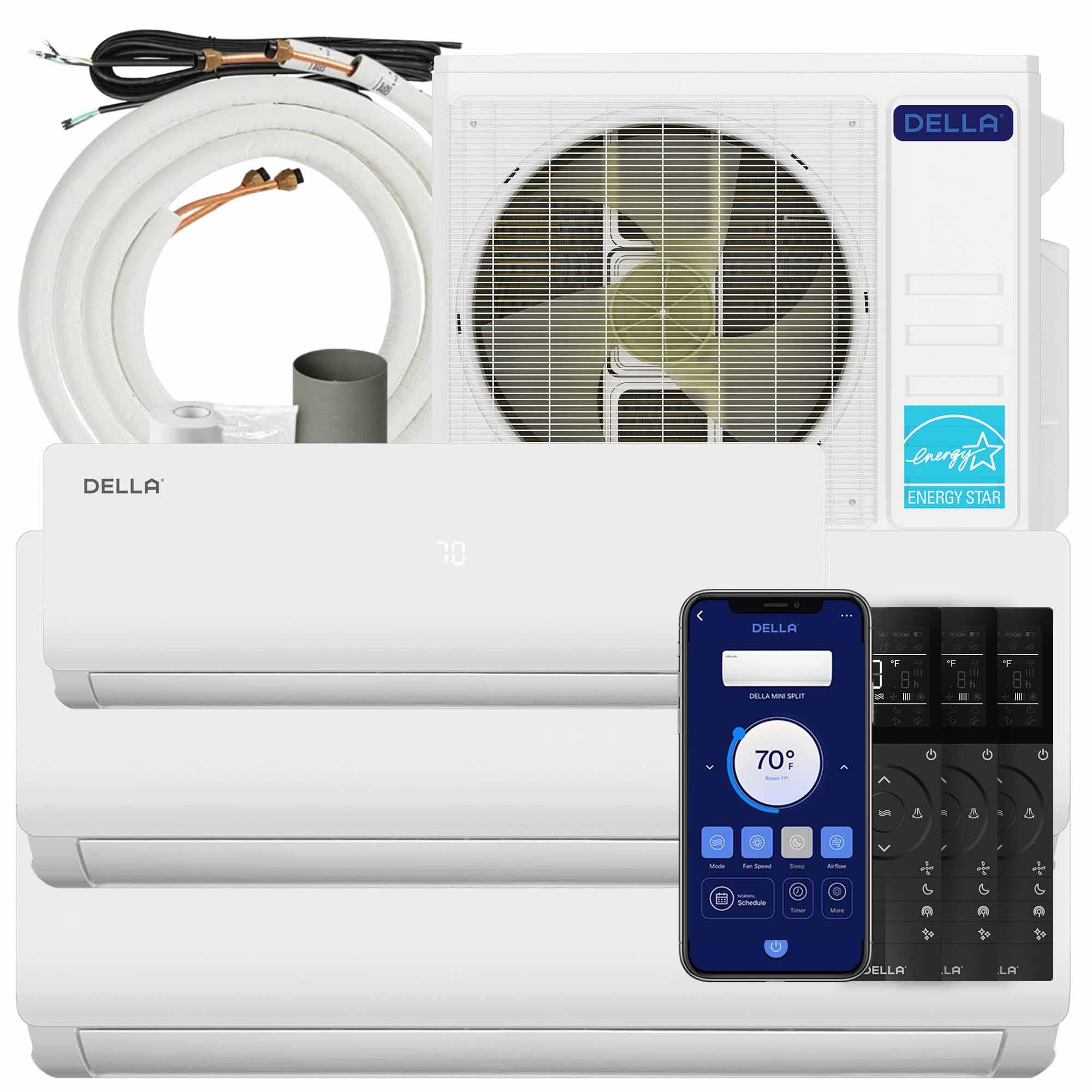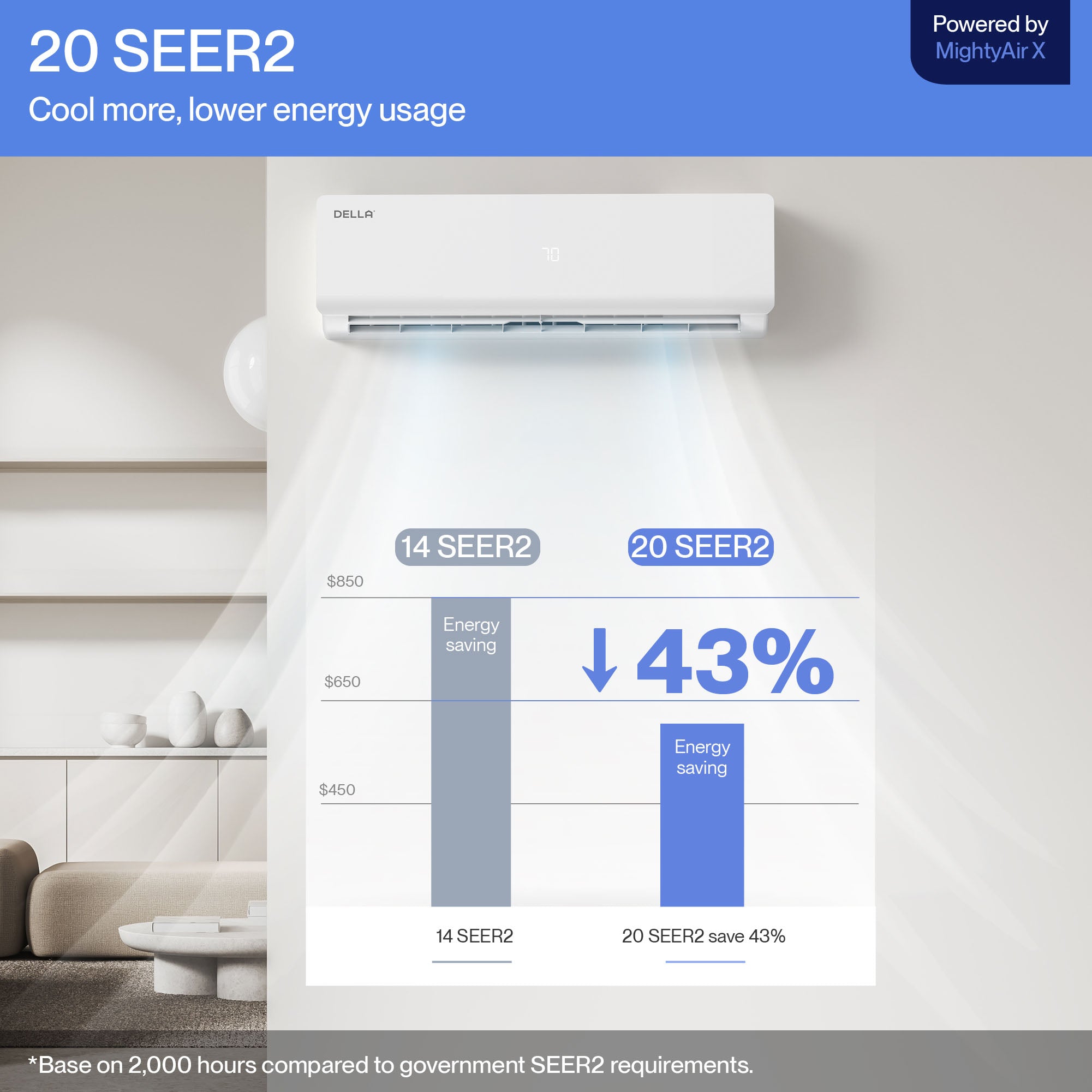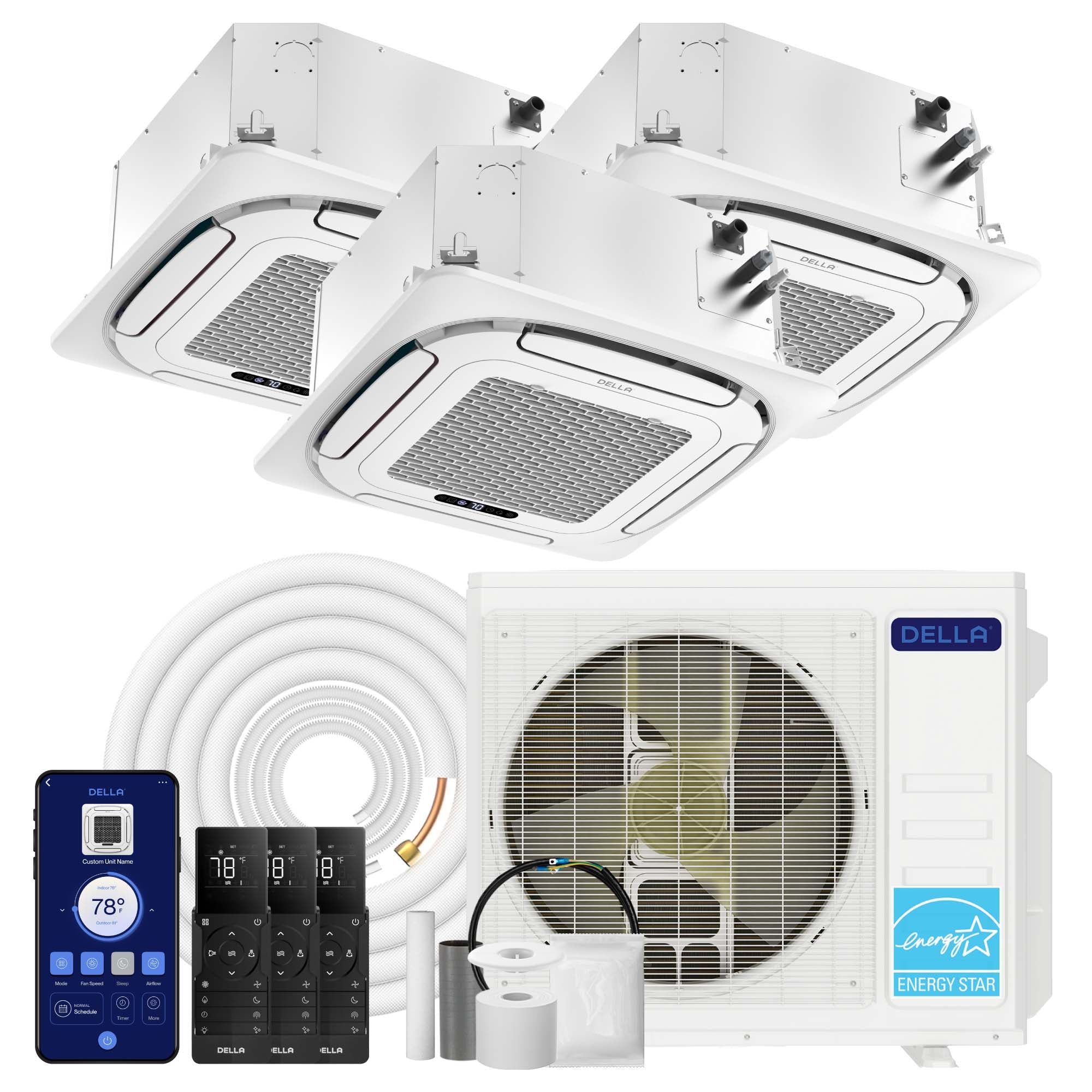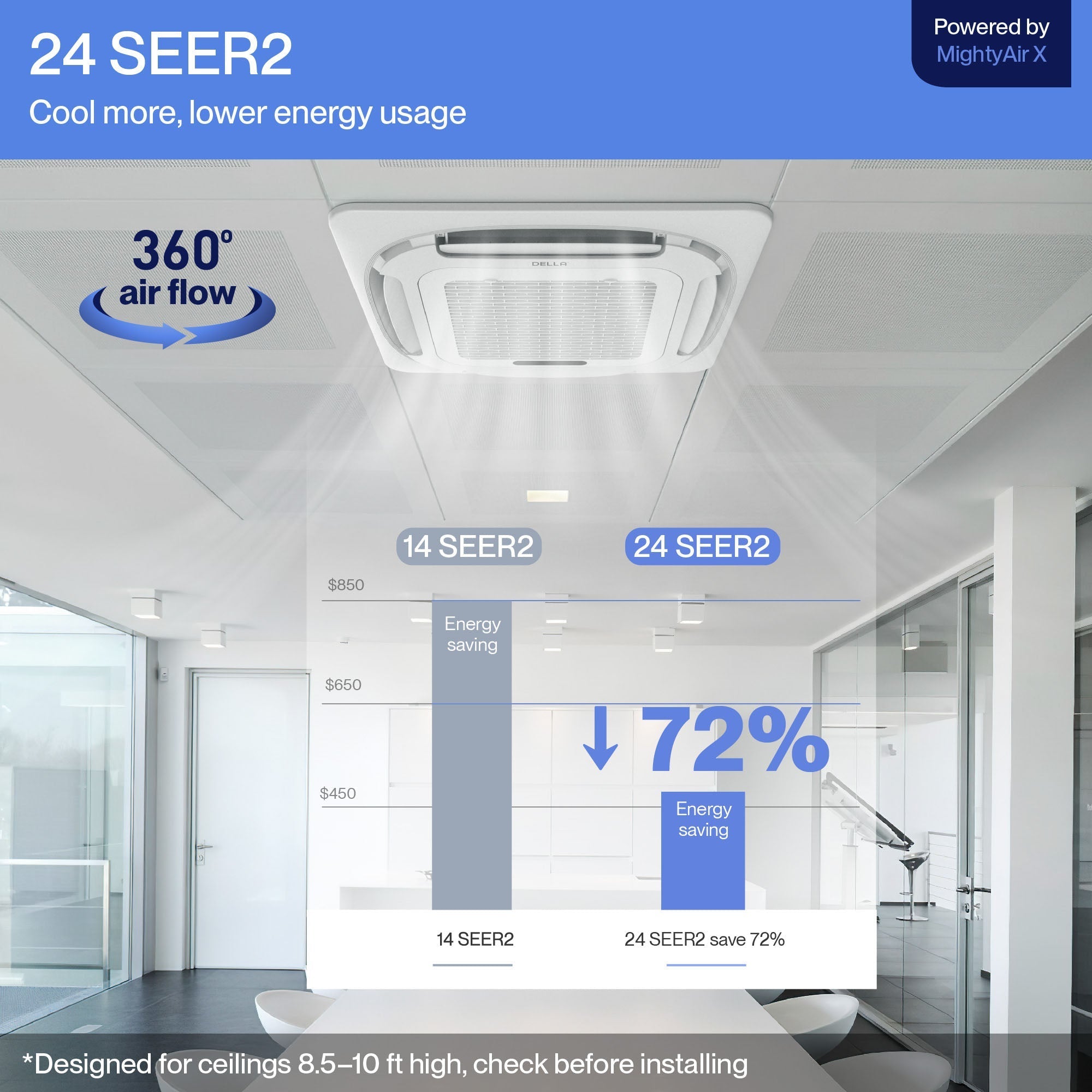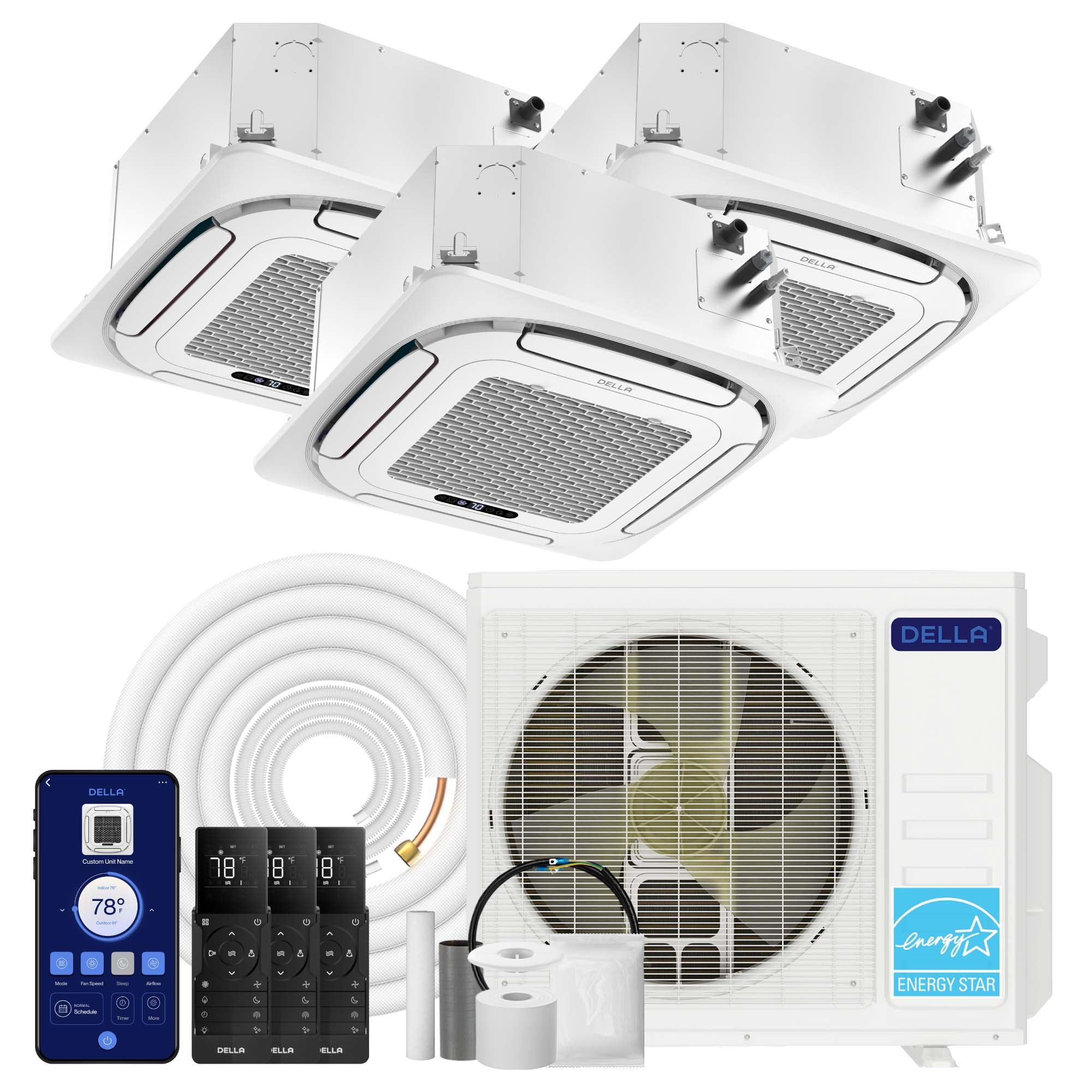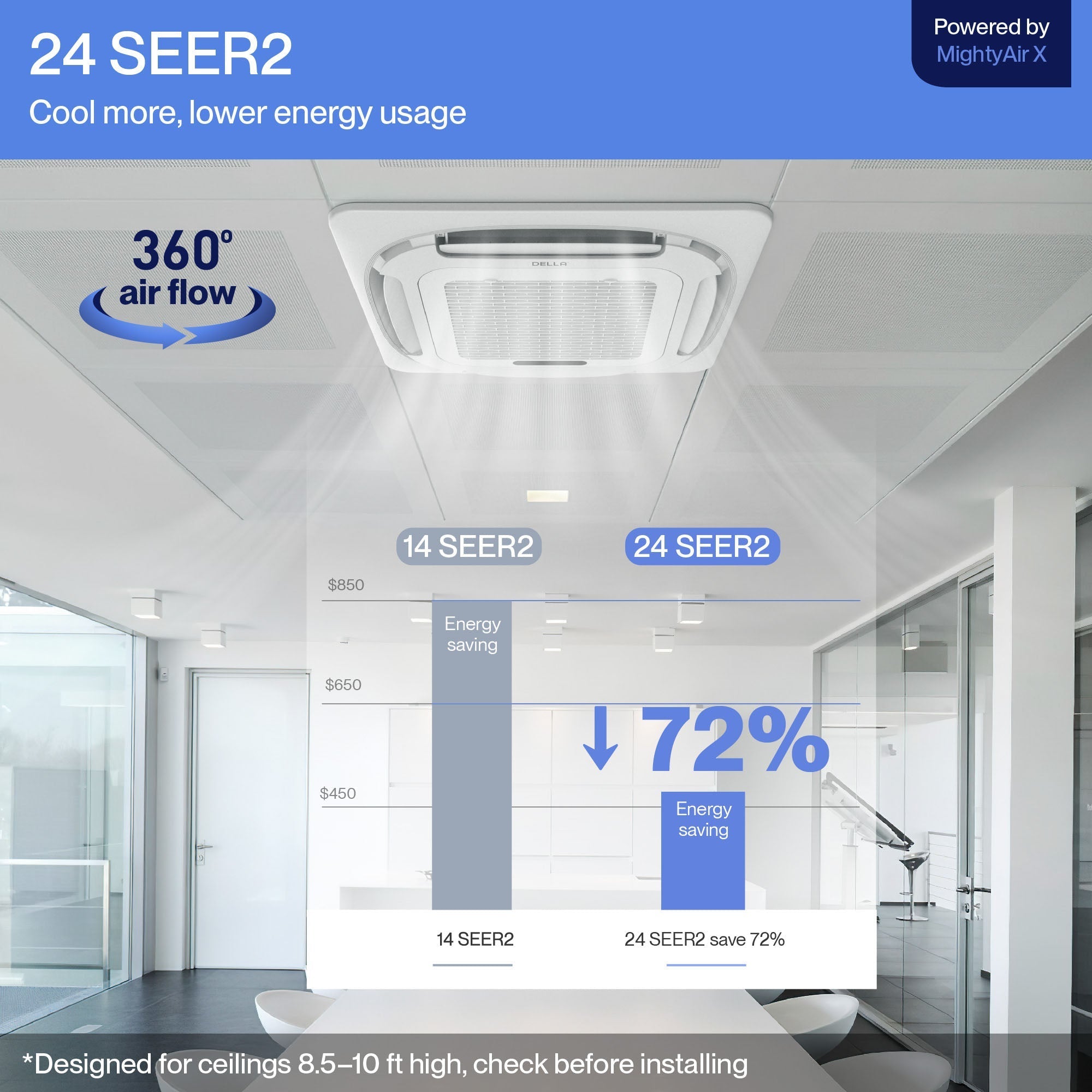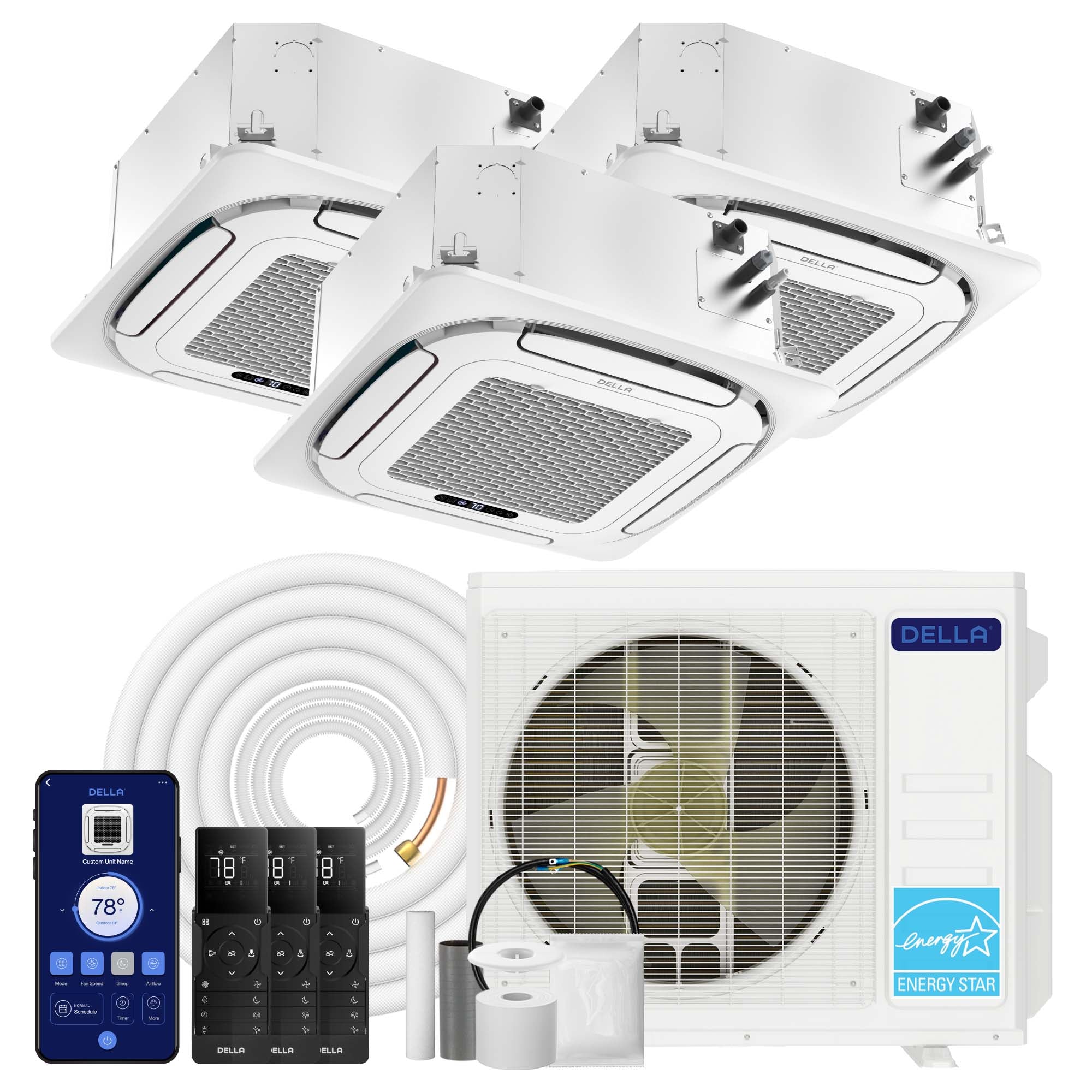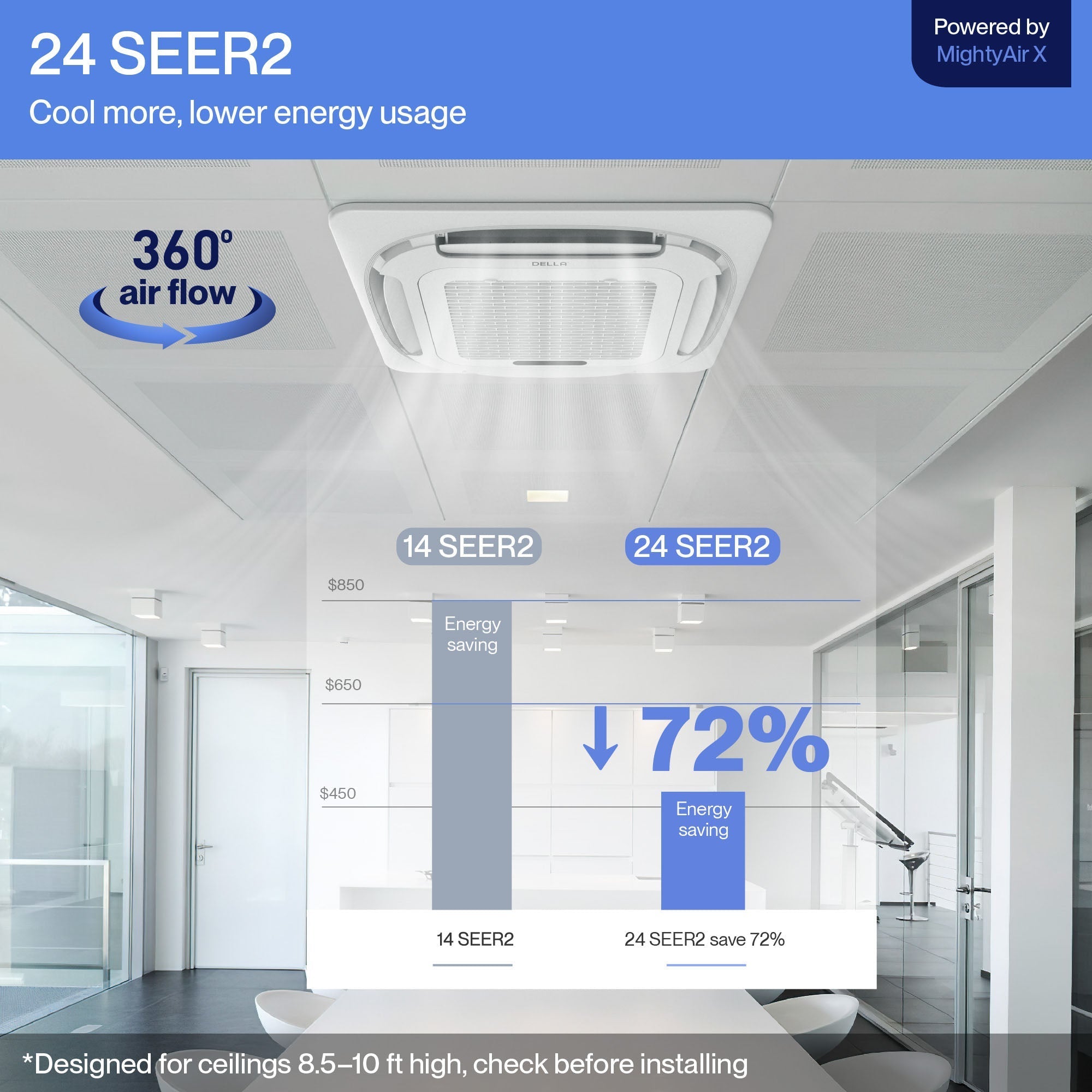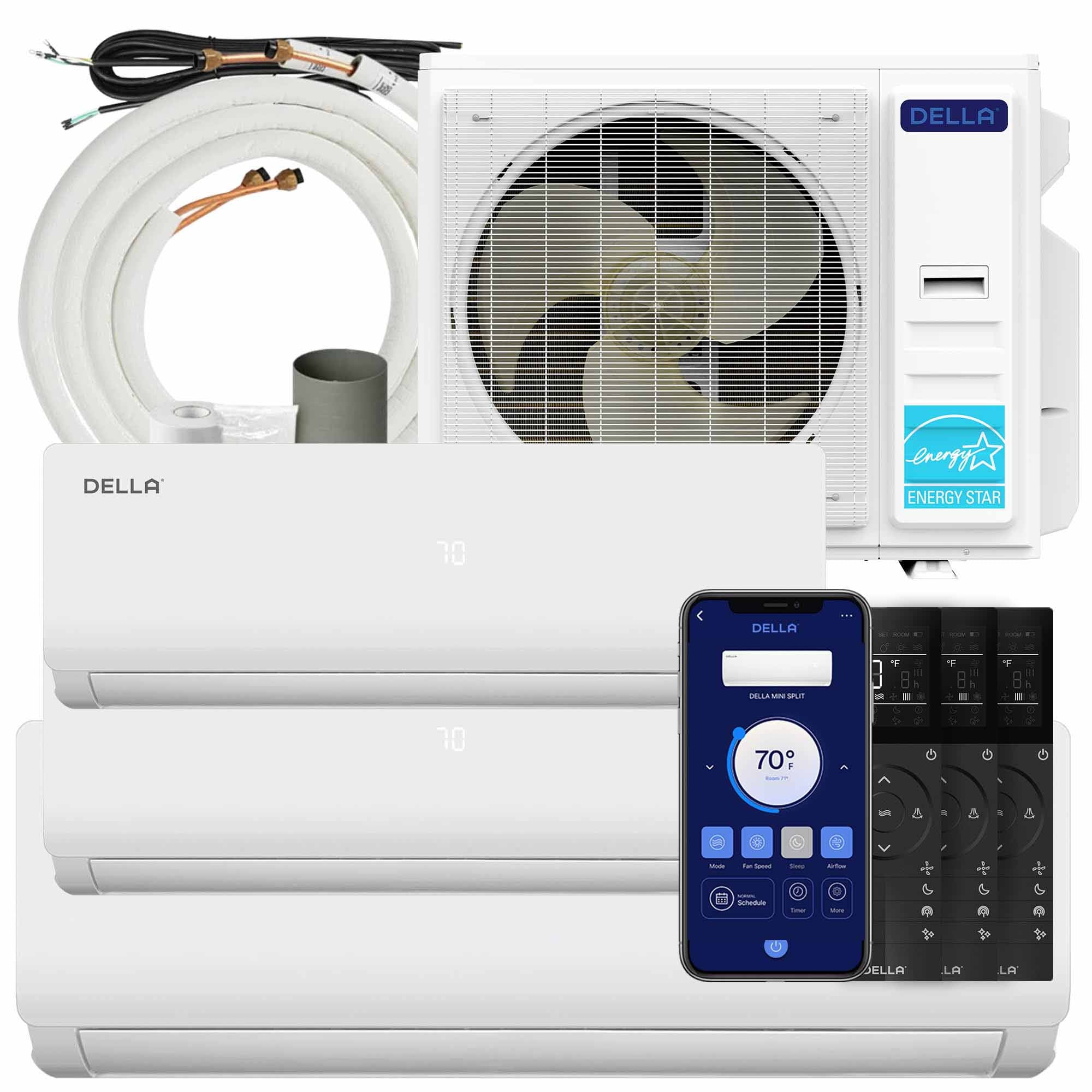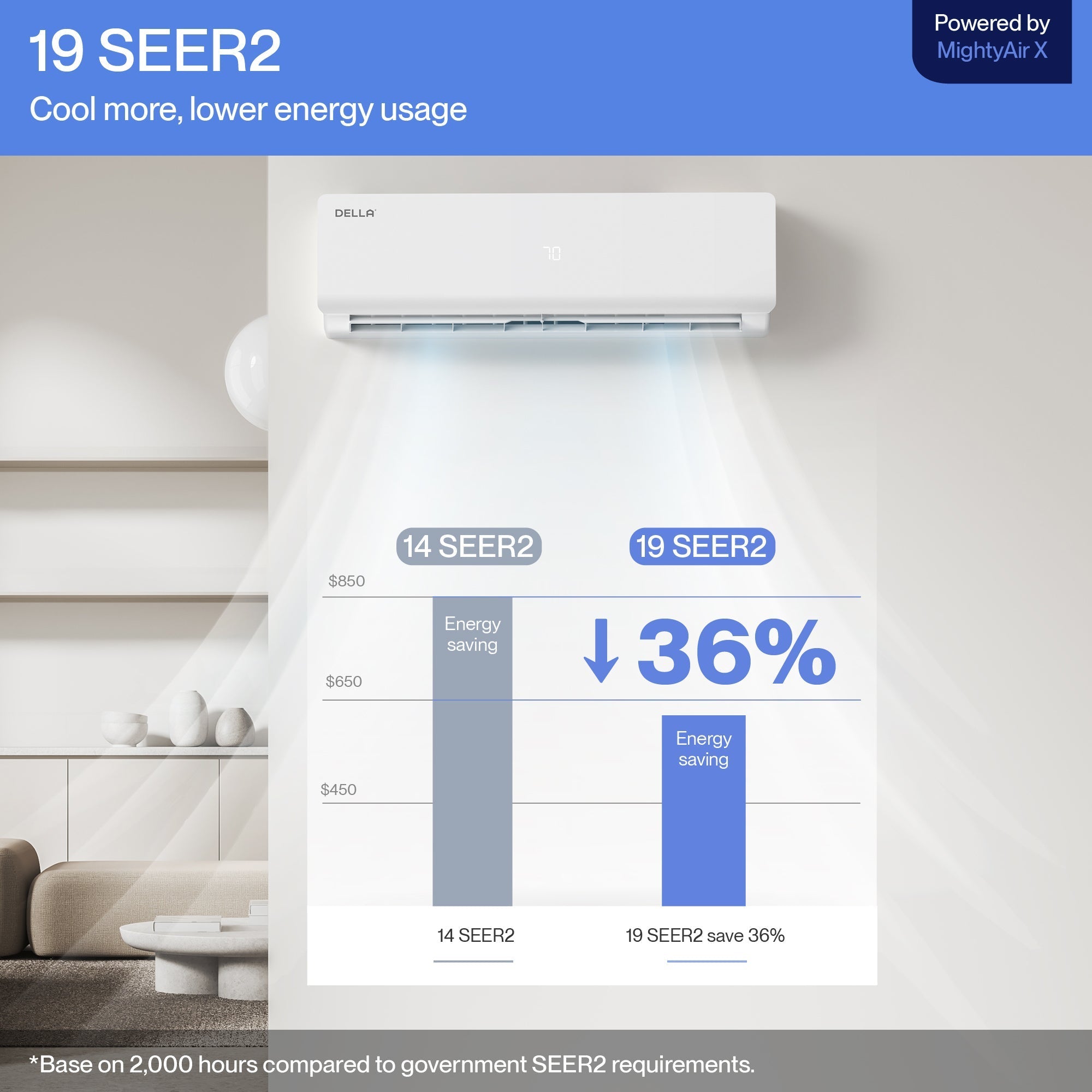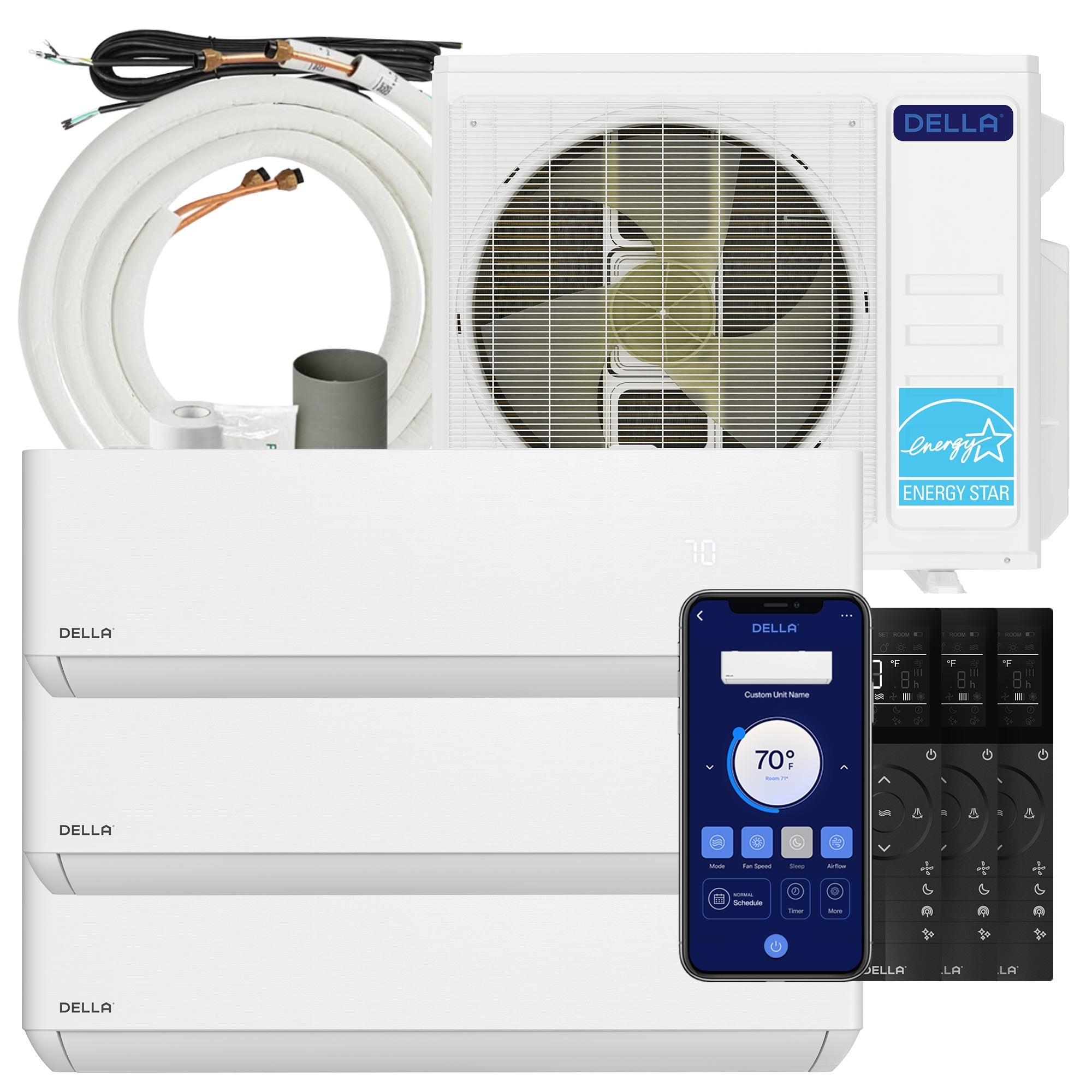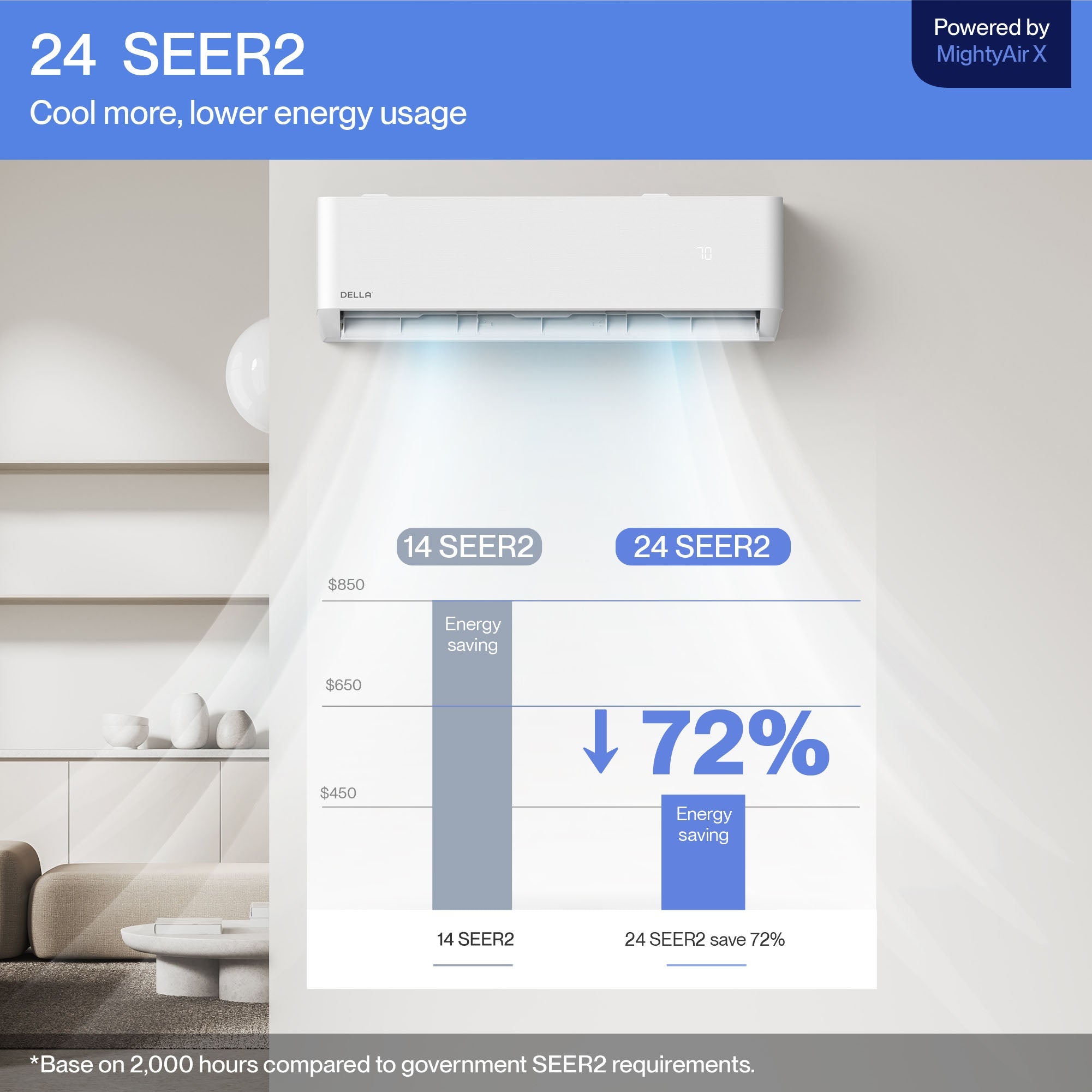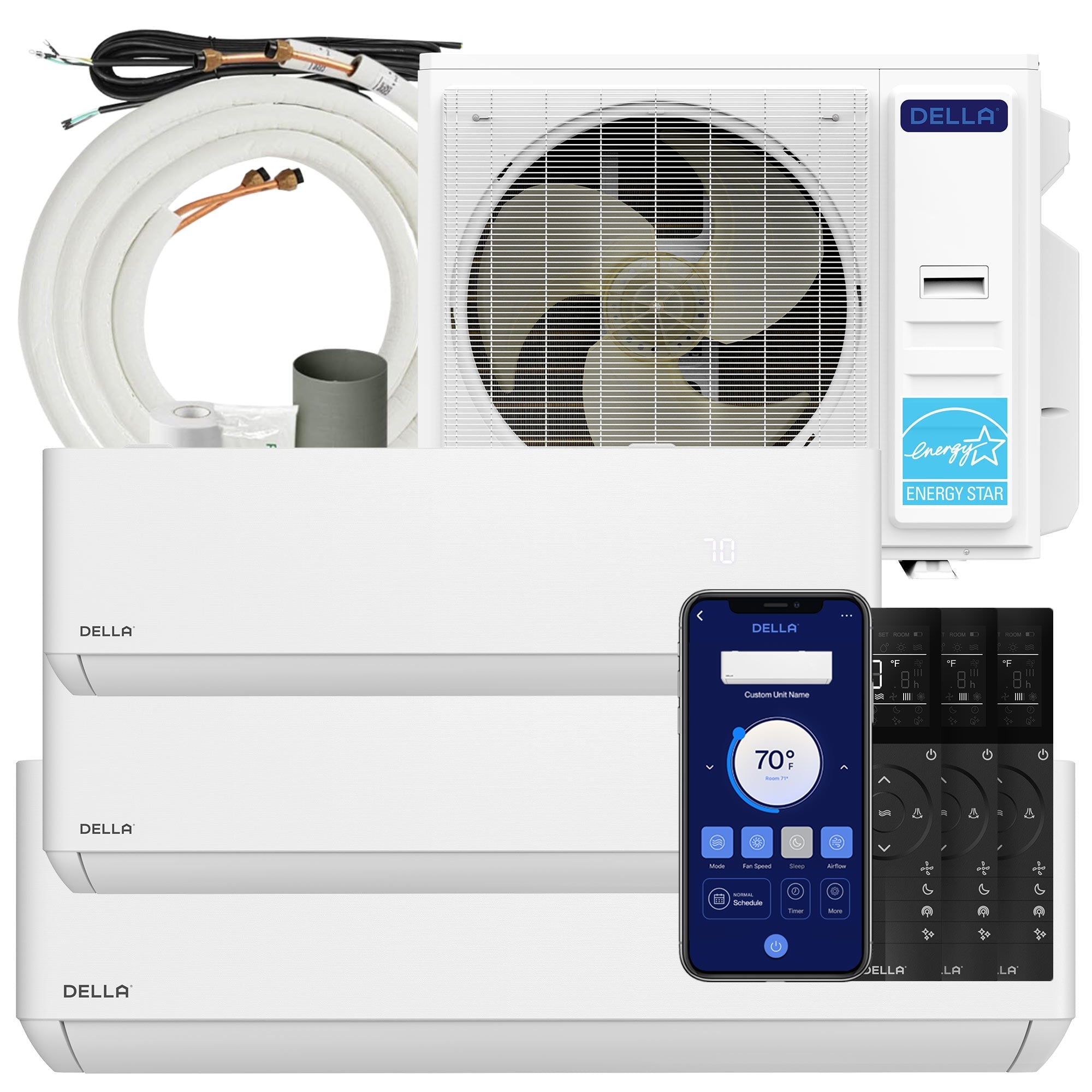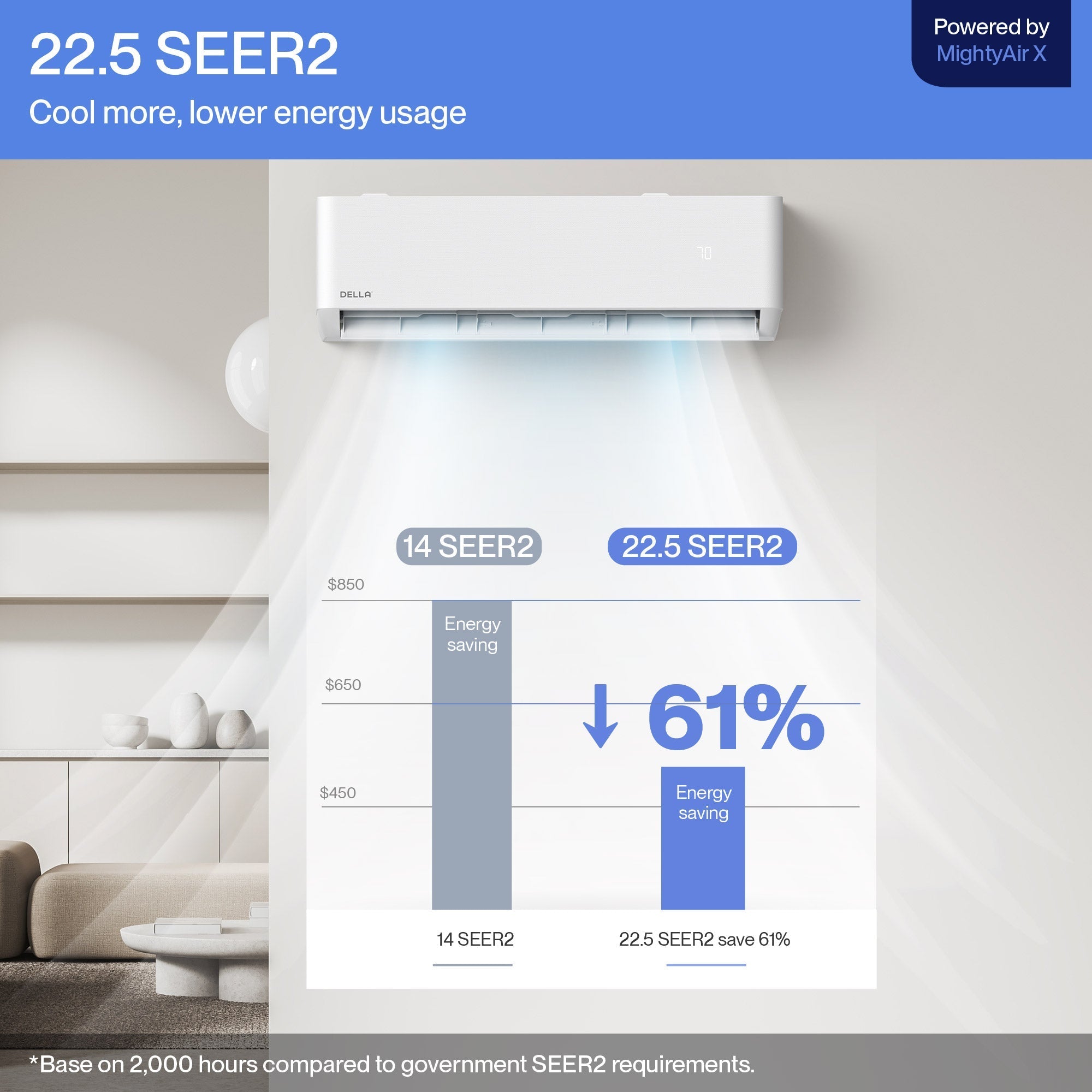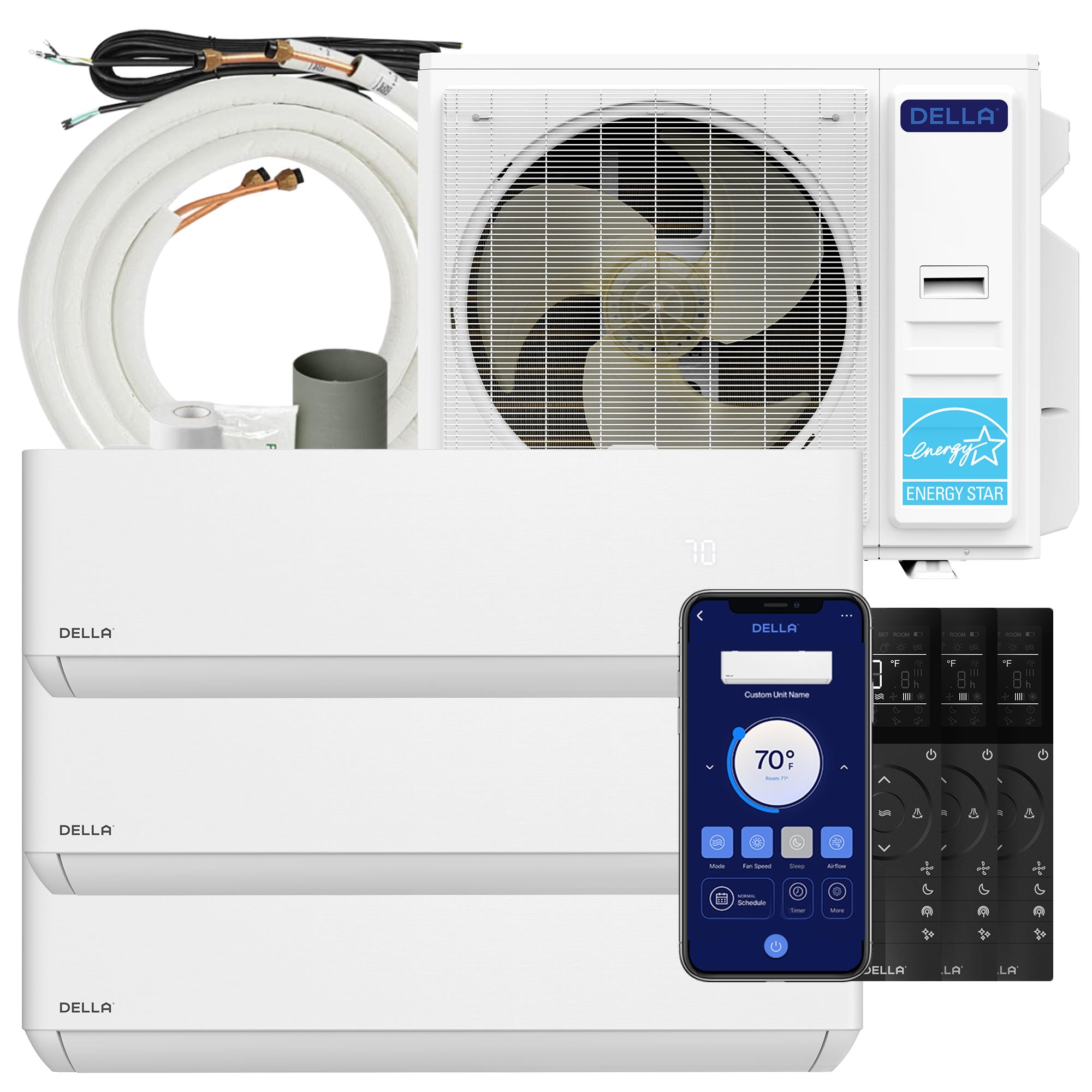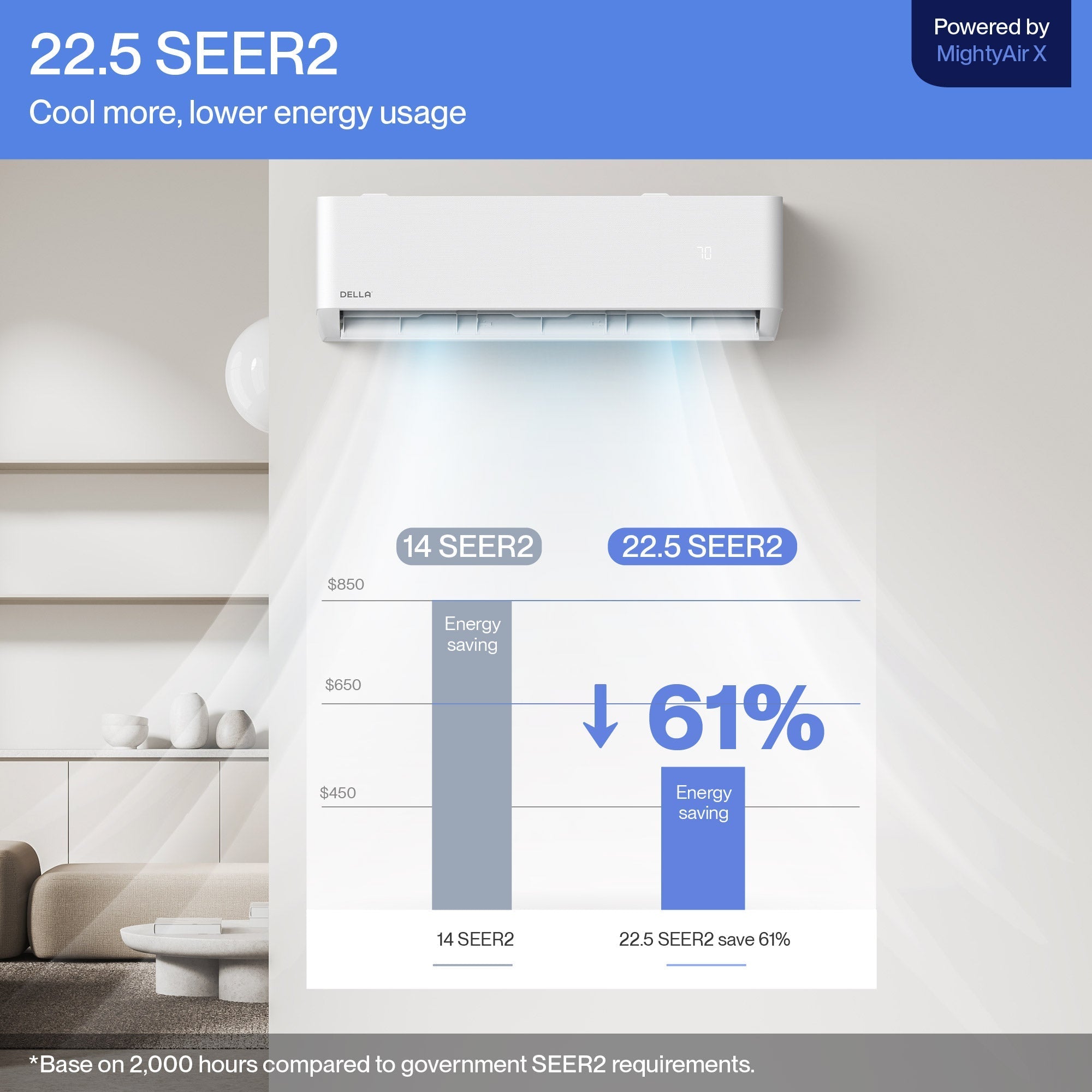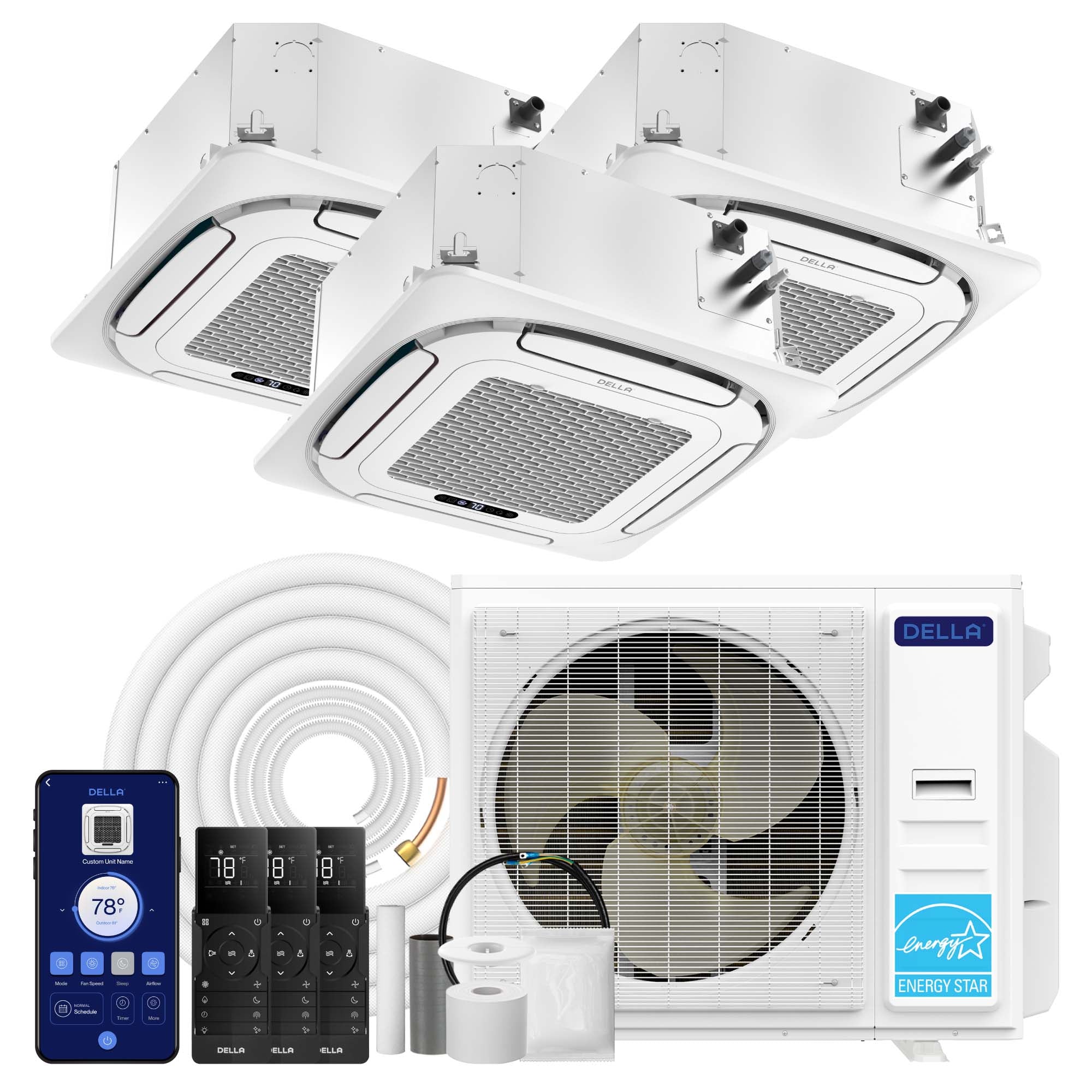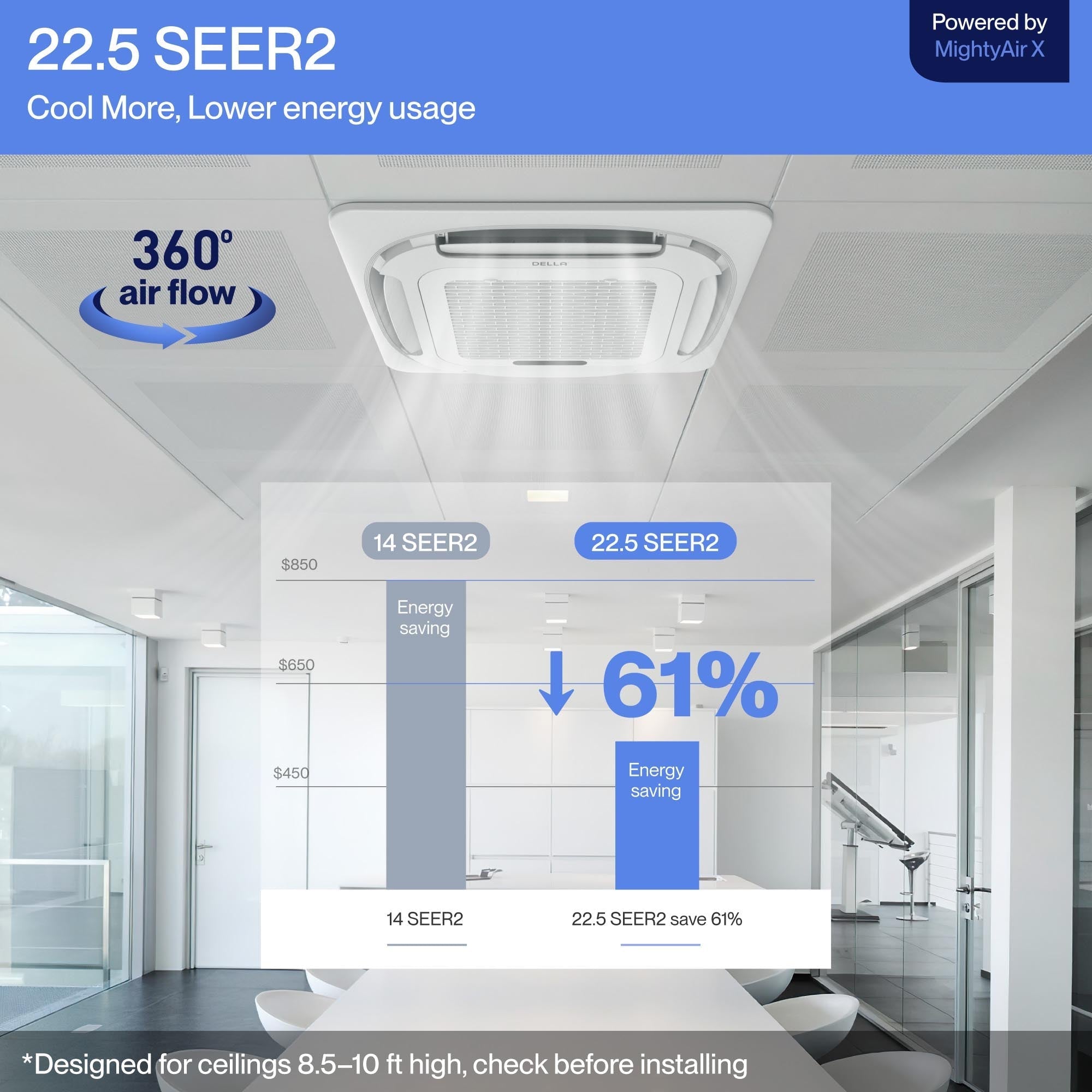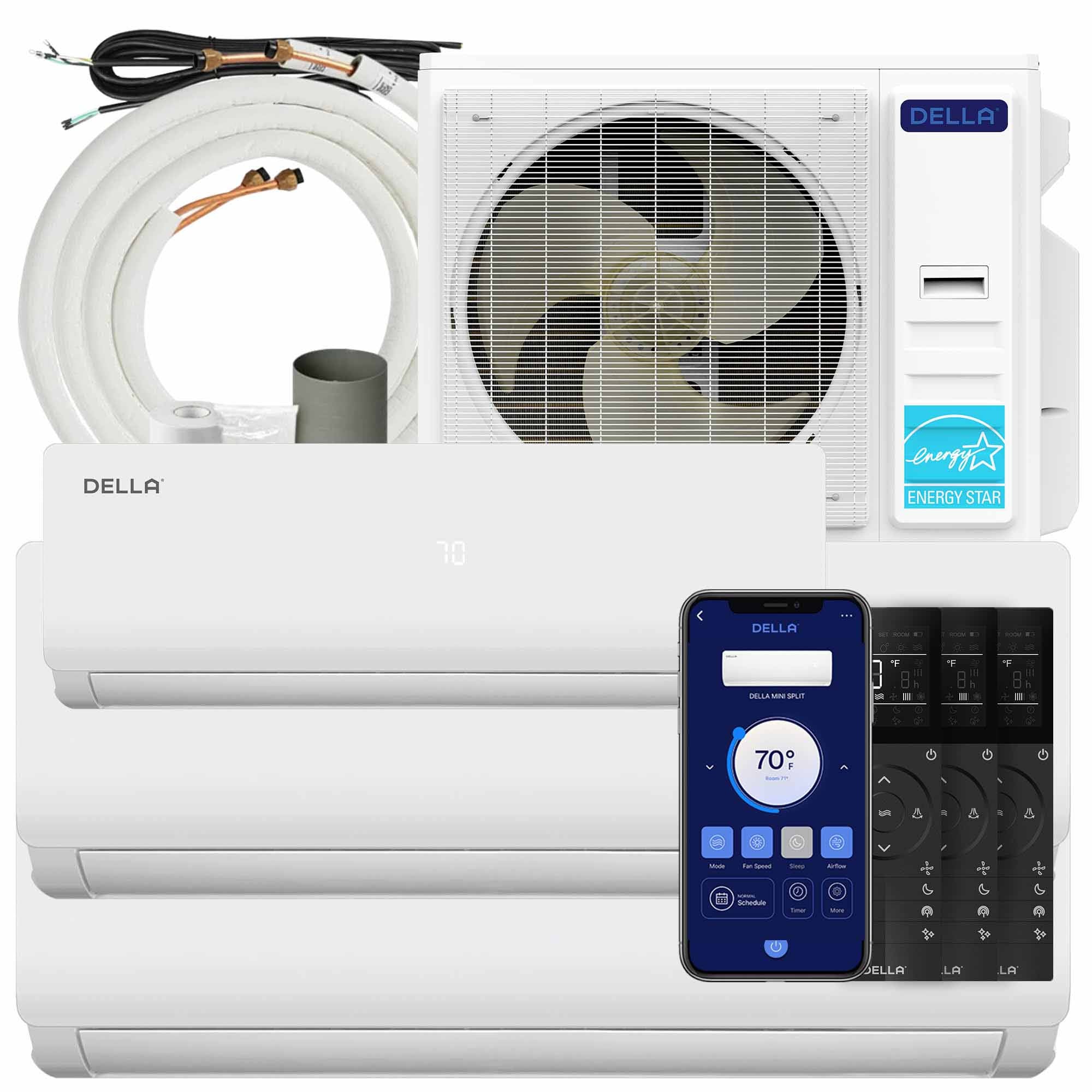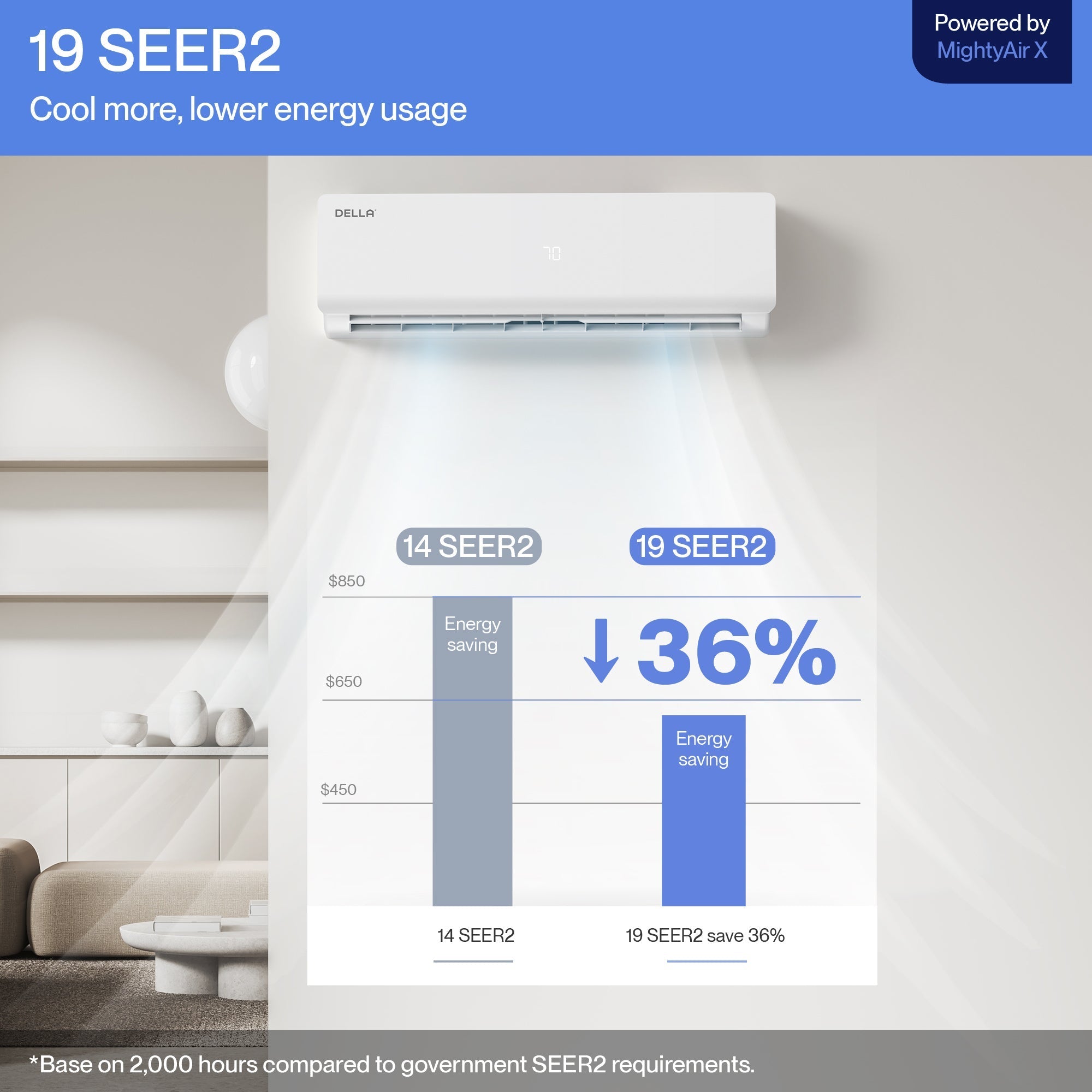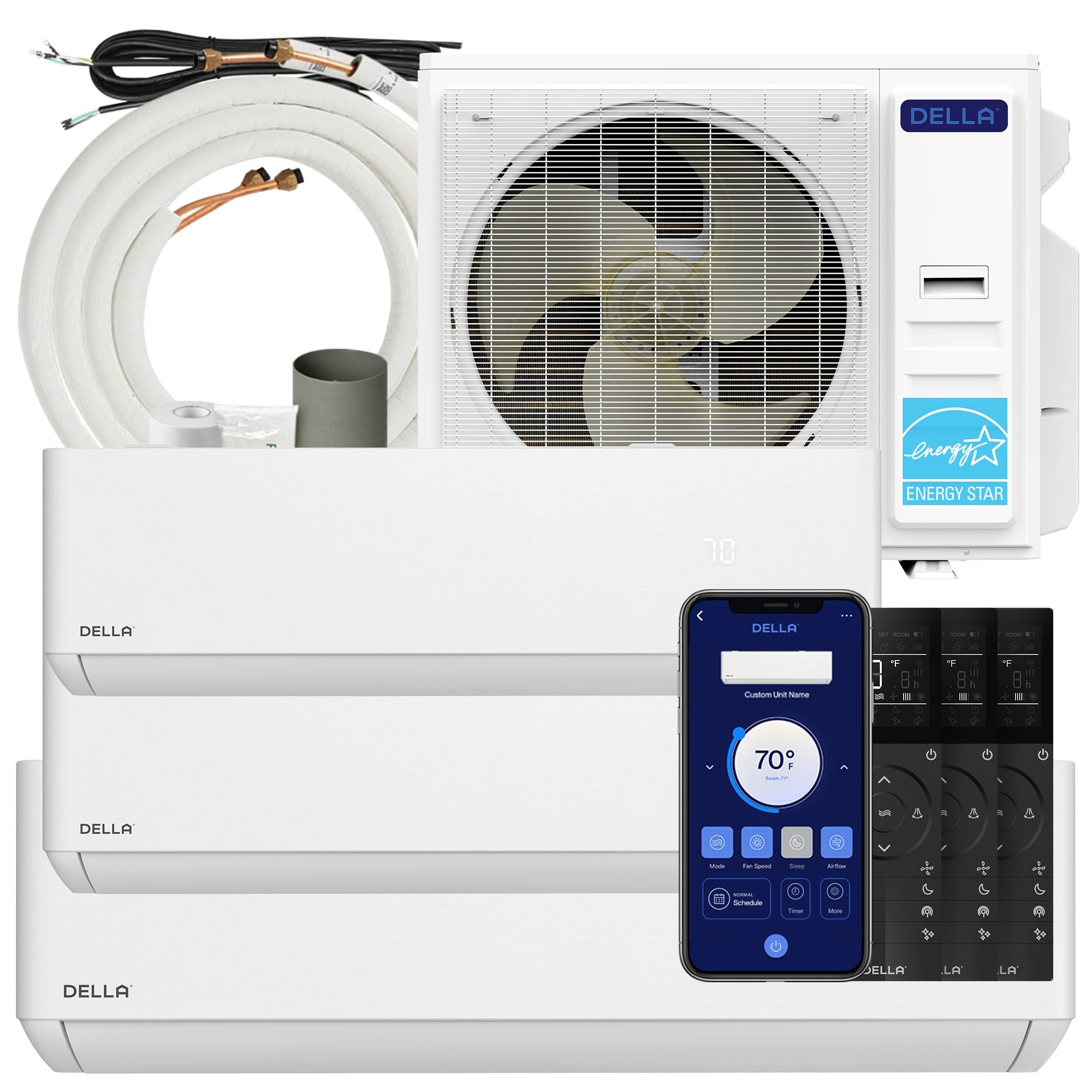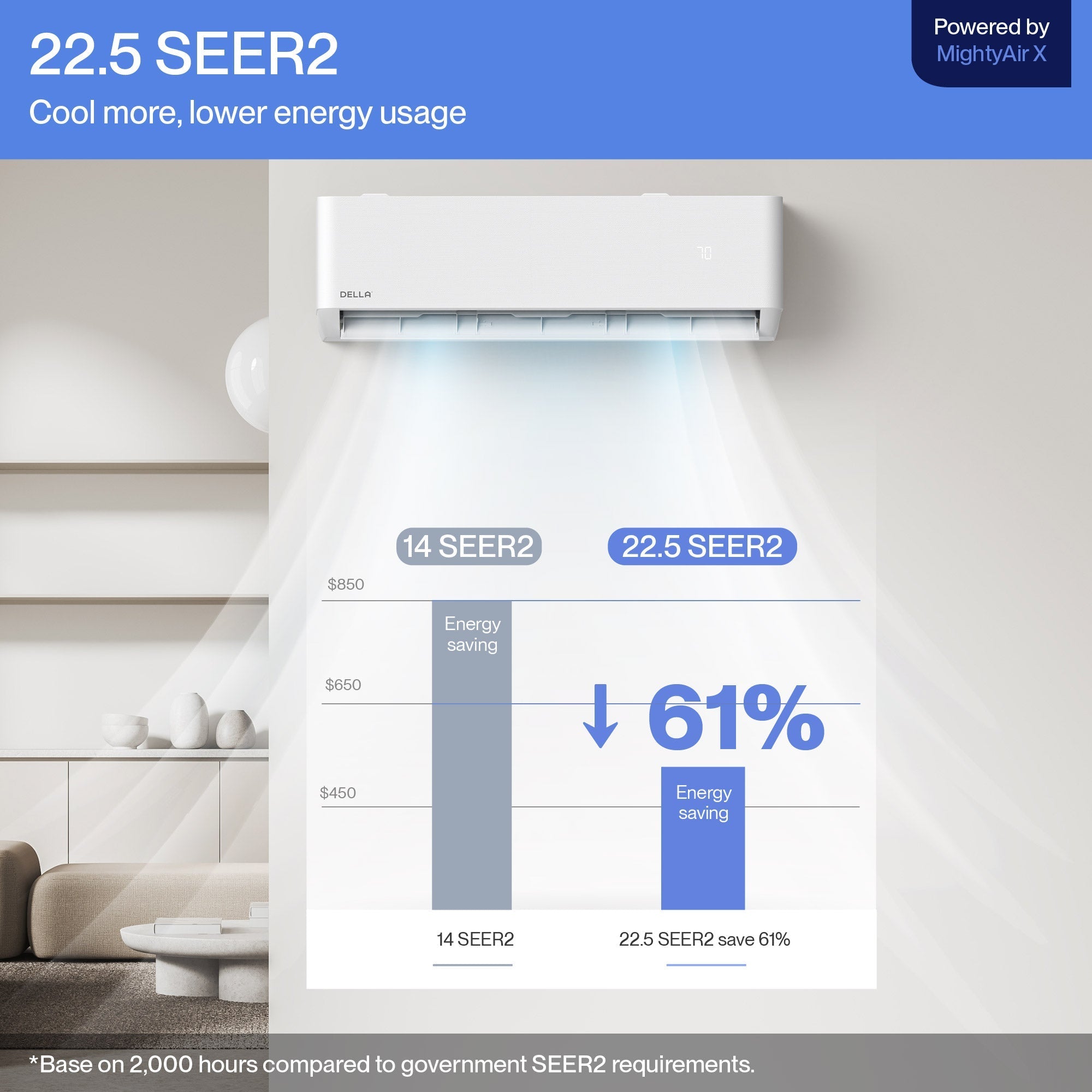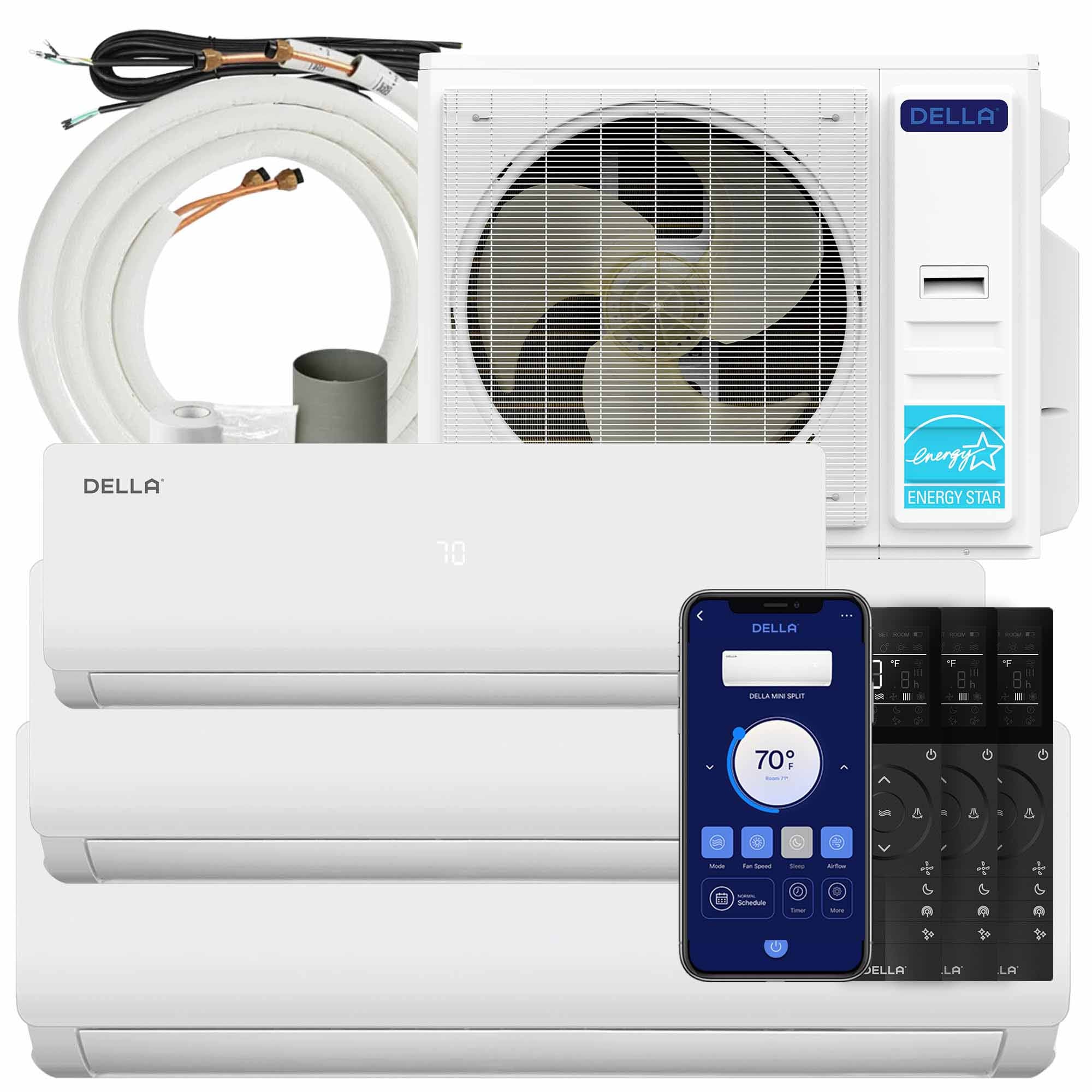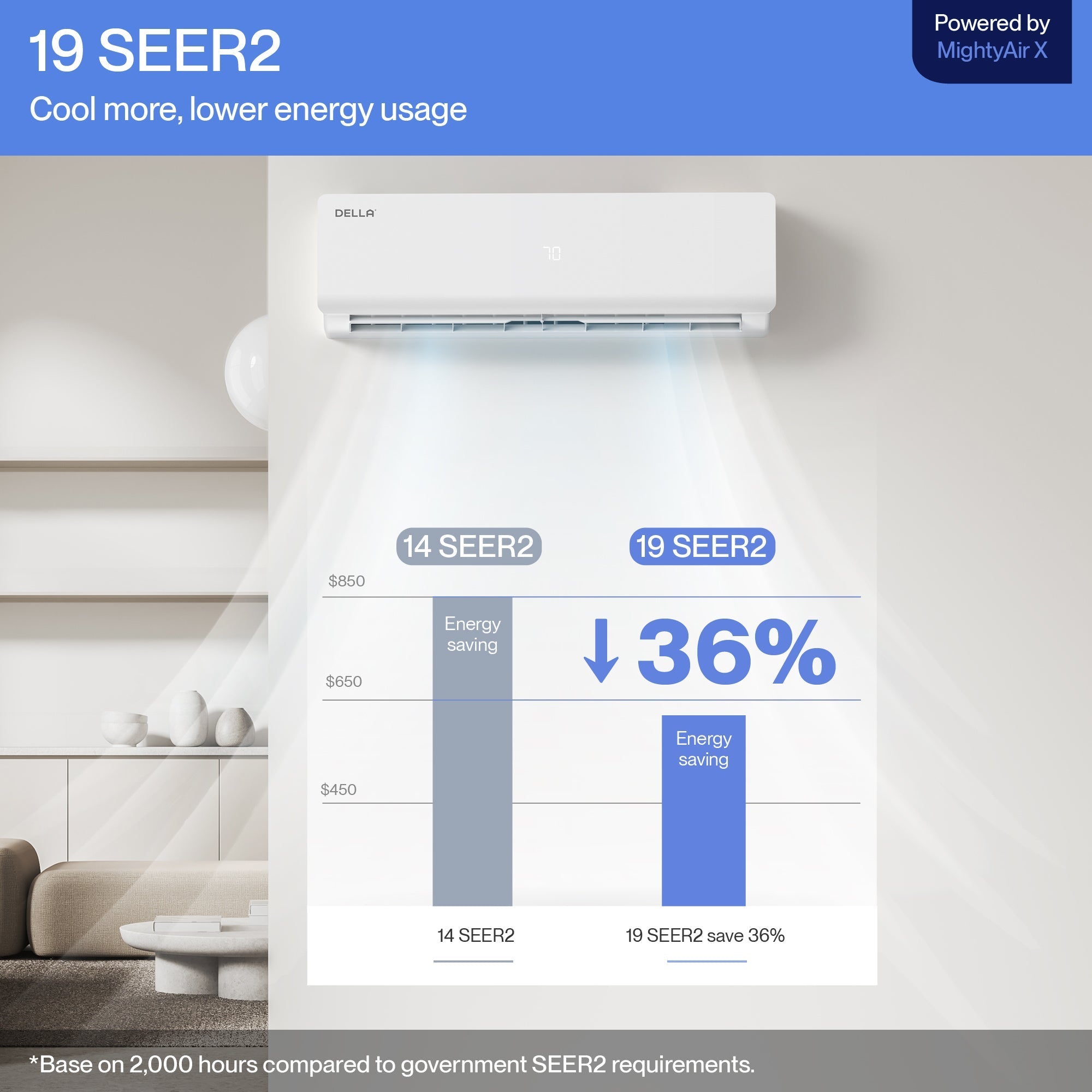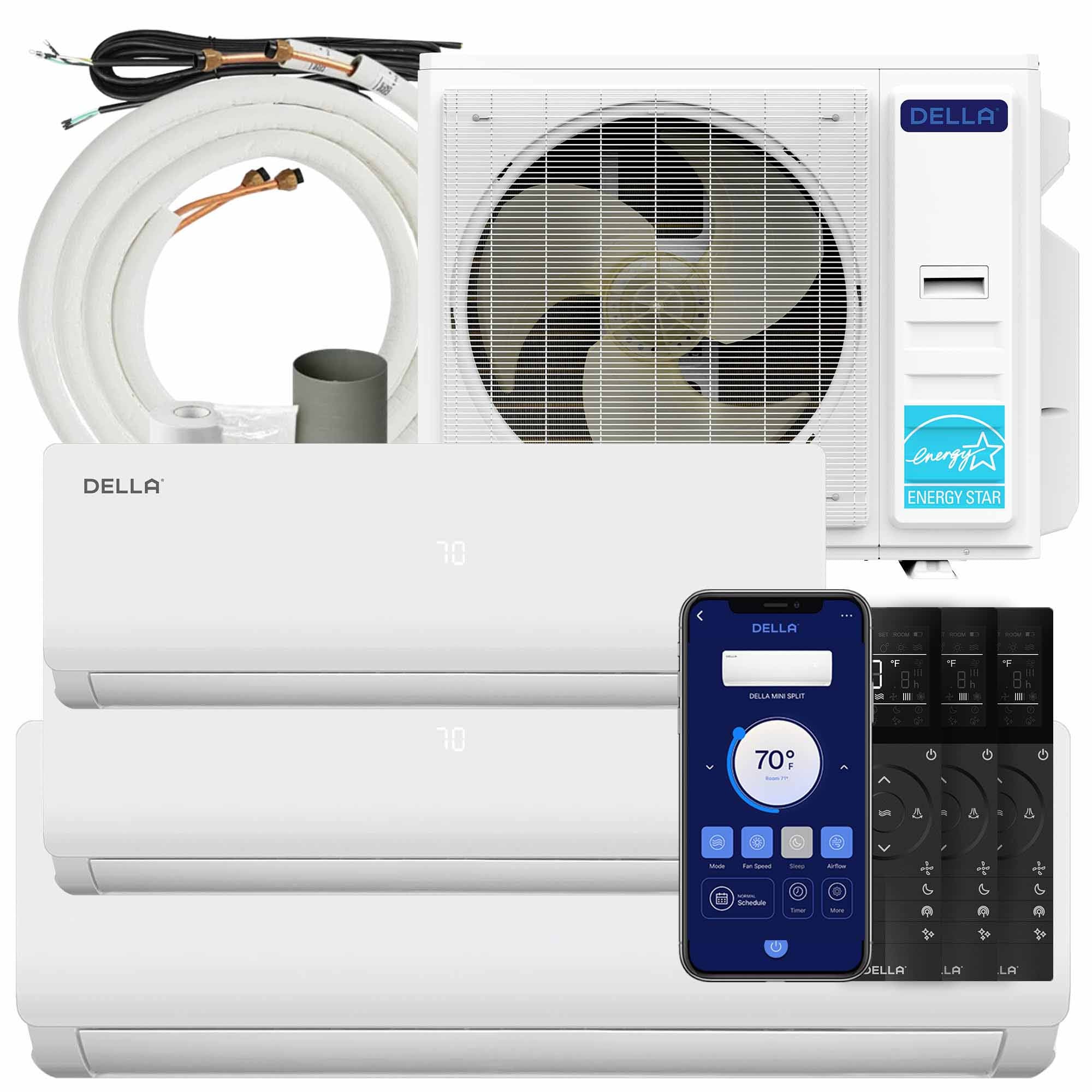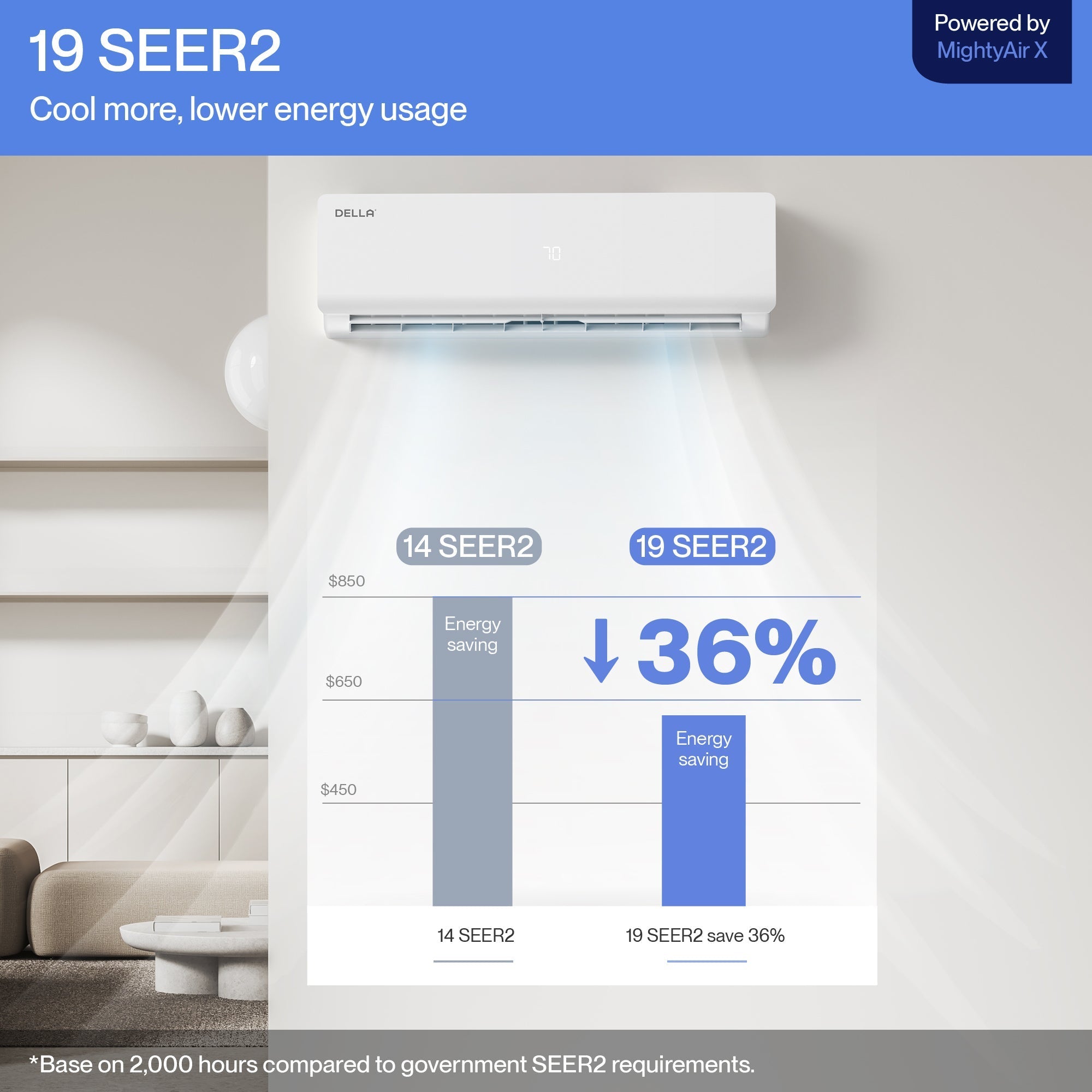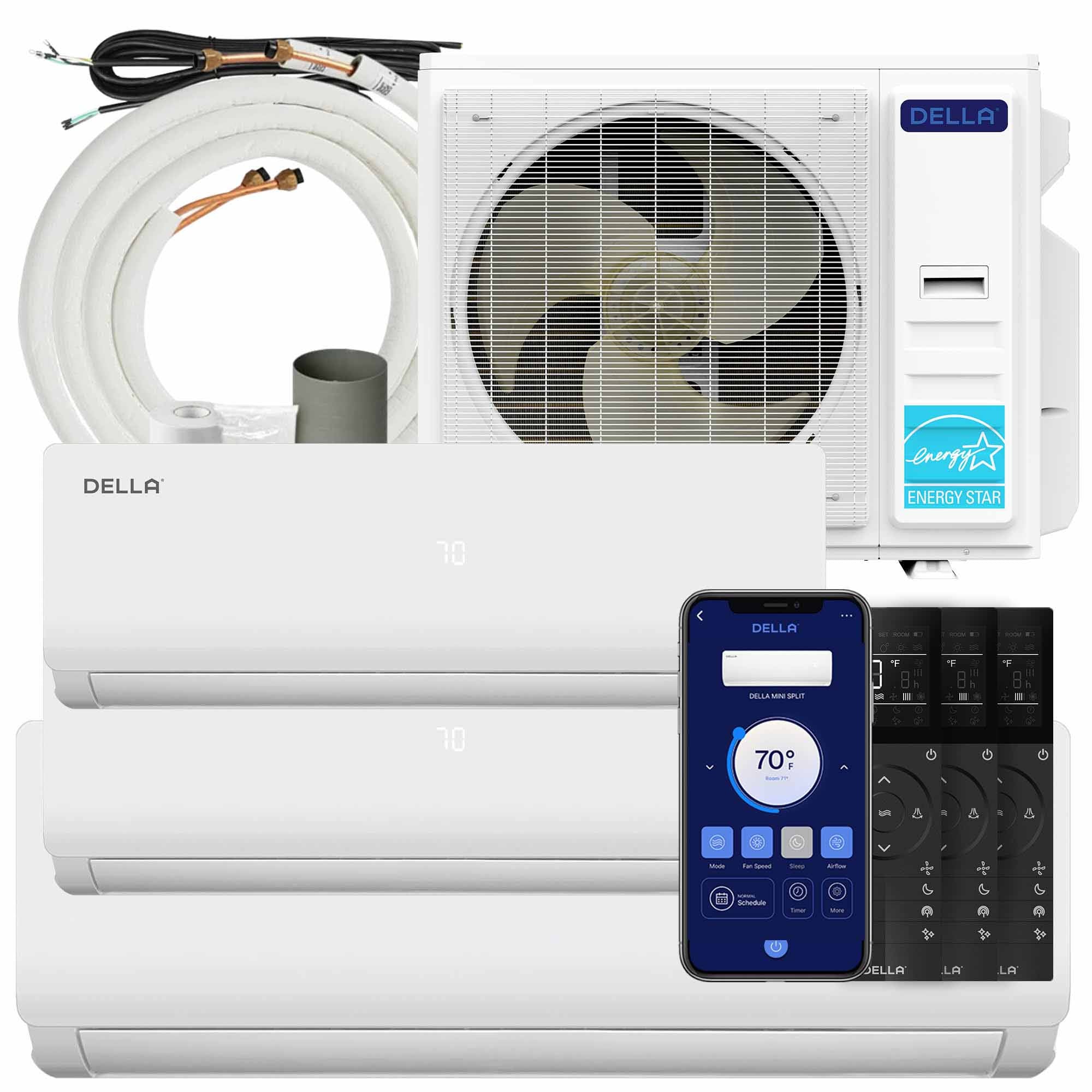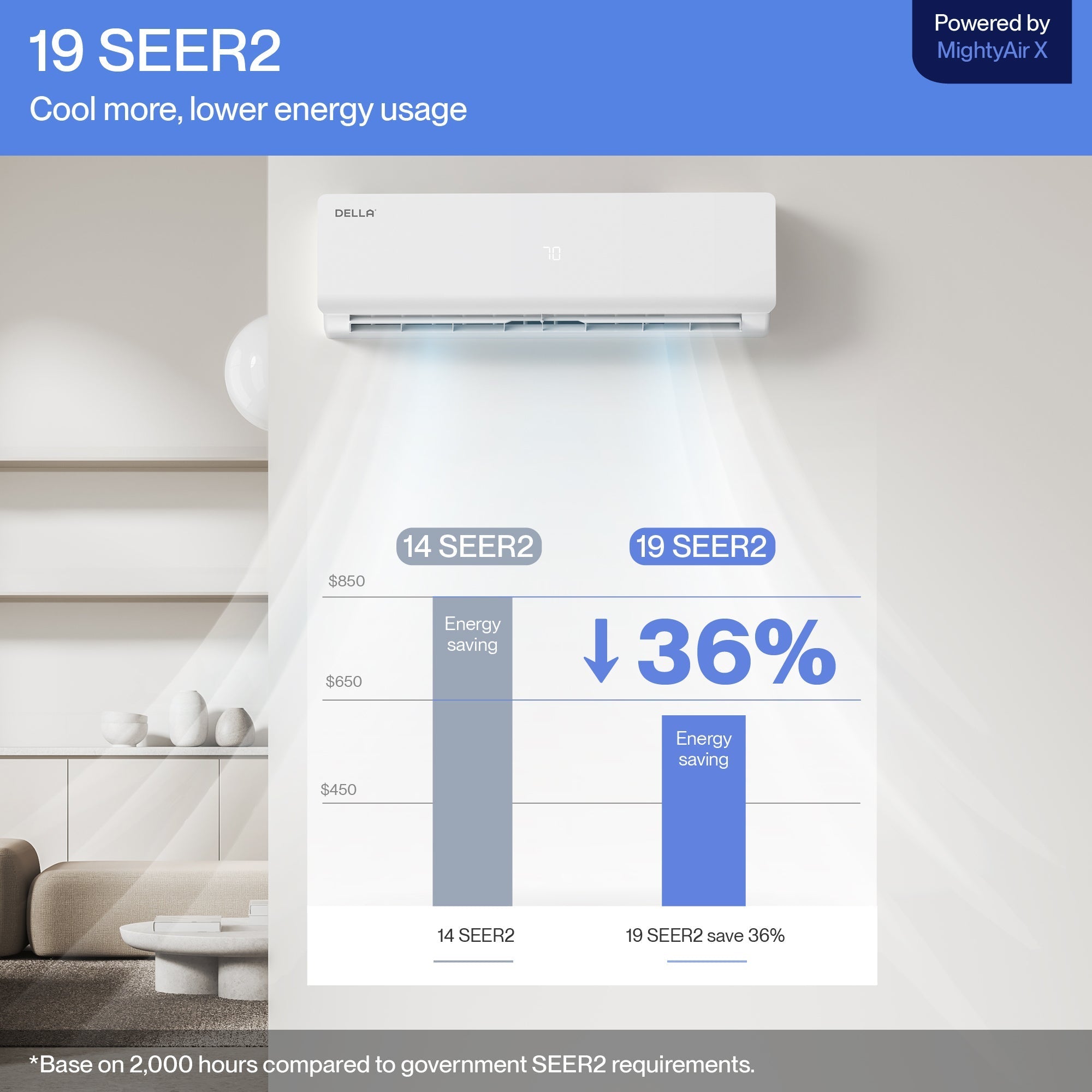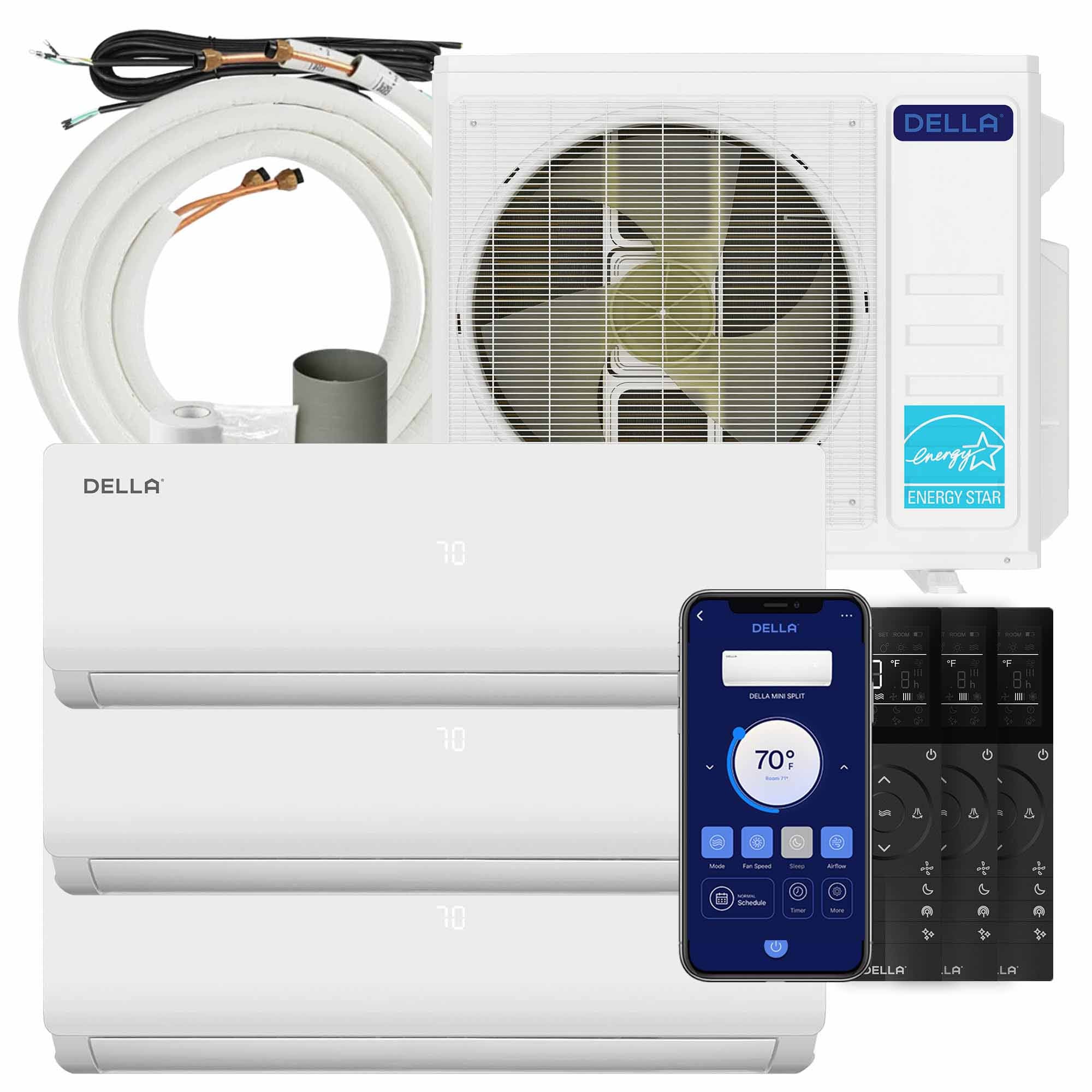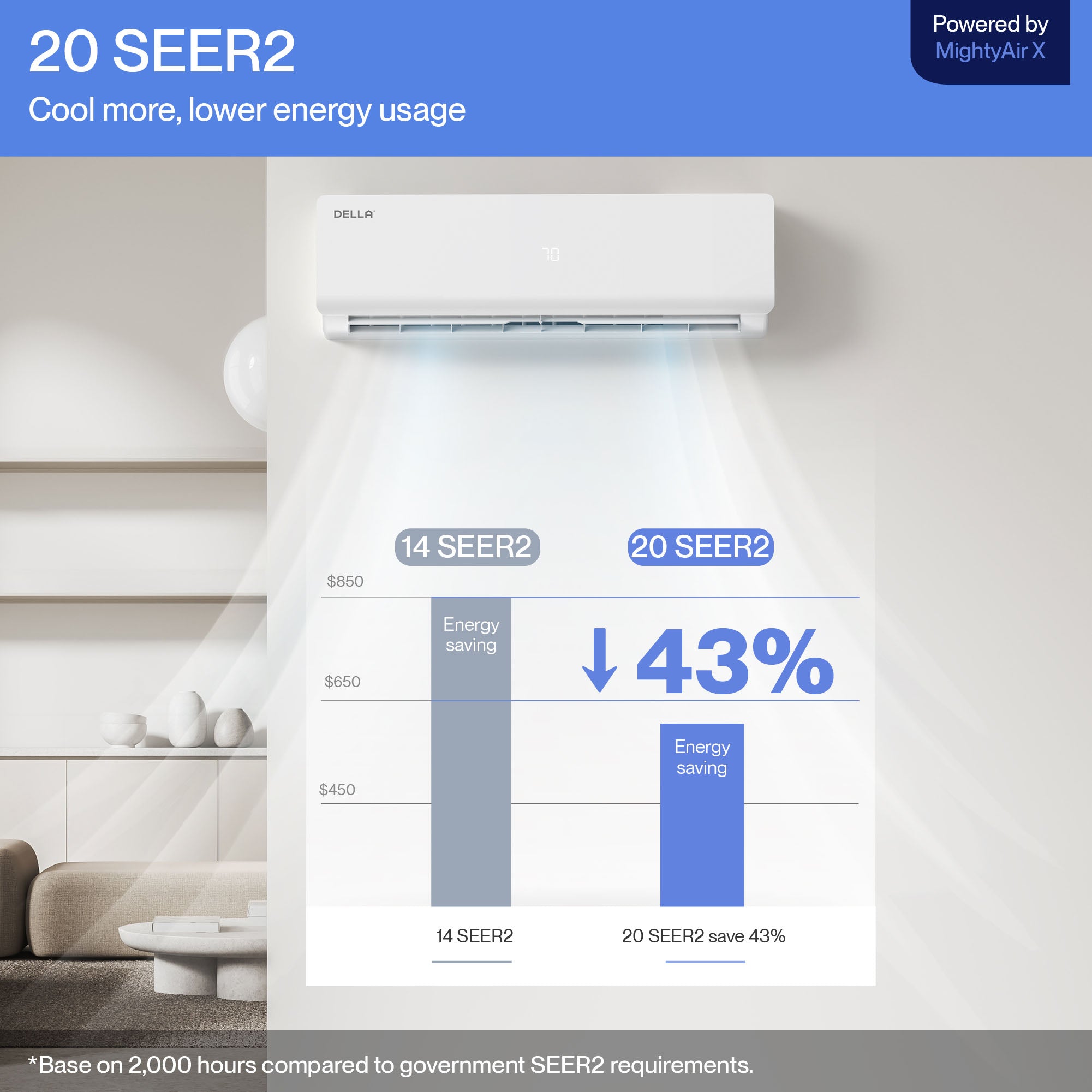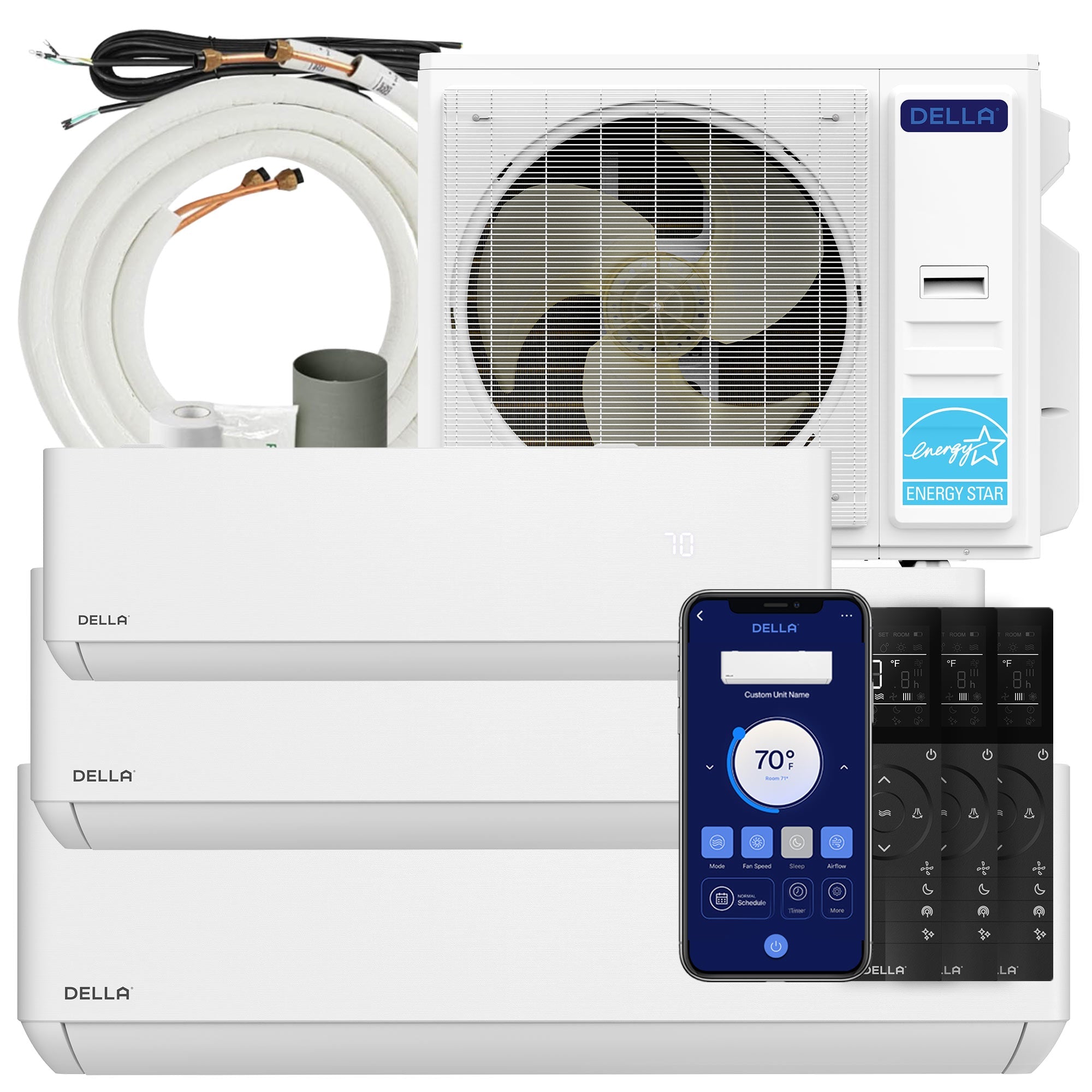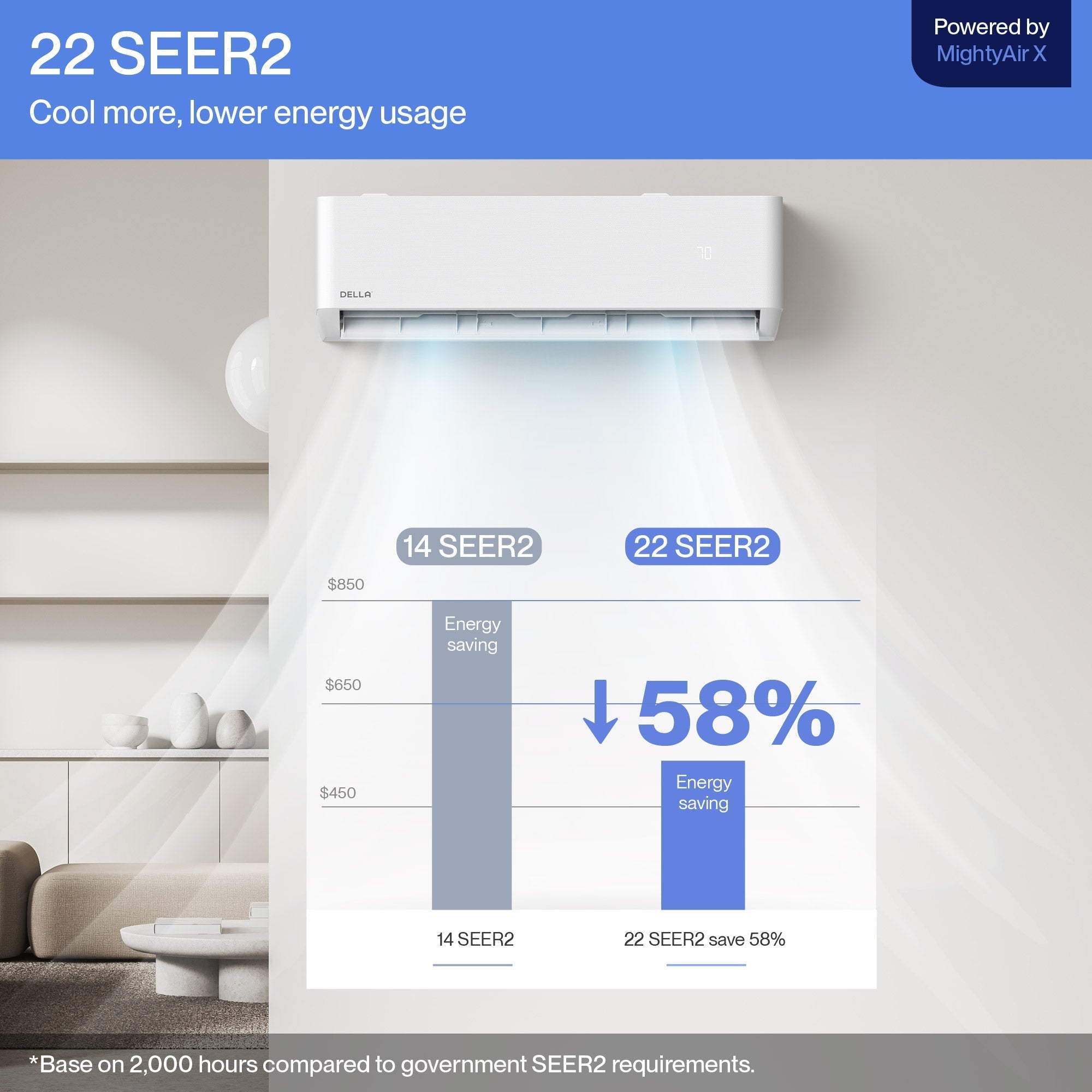FAQs
1. How large will a 3-zone mini split cool?
A 3-zone mini split or multi-zone heat pump typically has a total capacity of 18,000 to 36,000 BTUs, with each zone usually requiring 6,000 to 12,000 BTUs. This makes it suitable for cooling spaces ranging from 1,500 to 2,400 square feet, depending on factors like insulation, ceiling height, and climate.
2. How long does it take to install a 3-zone mini split?
Installing a 3-zone mini split usually takes 2 to 3 days, slightly longer than a 2 head mini split due to added complexity. The time depends on factors like the complexity of the installation, the routing of refrigerant lines, electrical work, and whether modifications to walls or ceilings are required.
3. How does a 3-zone HVAC mini split system work?
A ductless heat pump system like a 3-zone mini split connects one outdoor condenser to three indoor air handlers via refrigerant lines and wiring. Each indoor unit operates independently, allowing for different temperature settings in each zone. The outdoor unit adjusts compressor speed to meet the heating or cooling demand of the zones, making it efficient and precise.
4. What maintenance should I take for Della's 3-zone HVAC mini split?
Maintaining a 3-zone HVAC mini split system involves regular care to ensure optimal performance and efficiency:
Clean the Air Filters
Each air filter should be cleaned every three months. Remove the filter, wash it with soapy water, and let it air dry before reinserting. Clean more frequently if the environment is dusty or the air quality is poor. Regular cleaning prevents dust buildup and ensures efficient airflow.
Use the Self-Cleaning Function
Activate the self-clean function on the indoor units every three months to maintain cleanliness and reduce maintenance needs. This helps prevent mold and debris from accumulating inside the units.
Inspect the Outdoor Unit
Regularly check the outdoor unit for debris or obstructions. Clear away leaves, dirt, or other objects to ensure proper airflow and system efficiency.
Check the Refrigerant Levels
Every 3 to 4 years, have a professional HVAC technician inspect and adjust the refrigerant levels if necessary. This ensures the system operates efficiently and prevents potential damage.
Prepare for Long Idle Periods
If the system is not used for an extended period, remove the batteries from the remote controls and disconnect the power supply to protect the unit. This prevents battery corrosion and reduces the risk of electrical issues.
Restart After a Long Idle Period
Before using the system again after a long idle period, clean the air filters, ensure the drain pipes are unobstructed, and remove any obstacles around the air inlets and outlets. Reinsert the batteries into the remote controls and reconnect the power supply.
5. How much does it cost to install a three-zone mini split?
The cost to install a three-zone mini split ranges from $5,000 to $15,000, significantly higher than a single room AC system but offering multi-zone flexibility.
Cost Breakdown:
- System Cost: A 3-zone mini split system typically costs $4,000 to $10,000, depending on brand, features, and capacity.
- Labor Cost: Professional installation costs range from $1,500 to $4,000, depending on the complexity of the job.
- Additional Costs: Electrical work, permits, and mounting accessories can add $300 to $800.
6. How many heads can one mini split system have?
A single AC split unit can support 2 to 8 indoor heads, depending on the capacity of the outdoor unit. Larger 18,000 BTU air conditioner systems with higher BTU ratings can handle more heads, while smaller systems are limited to fewer zones.
7. Does a three-zone mini split provide consistent heating and cooling across large spaces?
Yes, a three-zone mini split provides consistent heating and cooling across large spaces, as long as the system is properly sized and installed. Each zone operates independently, ensuring uniform comfort where needed. However, uneven distribution may occur if the unit is undersized or poorly installed.
8. Can you add two zones to a mini split?
You can only add two zones to a mini split if the outdoor unit is designed to support additional indoor heads, unlike a 4 zone mini split which requires dedicated capacity. The 3-zone HVAC mini split system must also have enough BTU capacity to handle the added zones without compromising performance. If your current outdoor unit doesn't support more zones, you’ll need to upgrade to a larger multi-zone system to accommodate additional heads.
9. Is 3-head mini split worth it?
Yes, a 3-head mini split is worth it for homes or spaces needing independent temperature control in three areas. It offers energy efficiency, zone-specific comfort, and quiet operation. While the upfront cost is higher, the flexibility and energy savings make it a cost-effective solution for many homeowners.
10. How do 3-zone mini splits work?
A 3-zone mini splits system connects one outdoor unit to three indoor air handlers through refrigerant lines, electrical wiring, and drain lines. The outdoor compressor circulates refrigerant, which absorbs or releases heat depending on whether it’s in cooling or heating mode. Each indoor unit operates independently with its own thermostat, allowing precise temperature control in each zone. The 3-zone mini splits system adjusts compressor speed using inverter technology to match the combined demand of all three zones, ensuring energy-efficient and consistent performance.
Free & Fast Shipping
Same Day Processing
30 Days Money-back
Guarantee
24x7 Live Chat Support
M-F Technical Phone Support
Lifetime Coverage
(Mini Splits)
